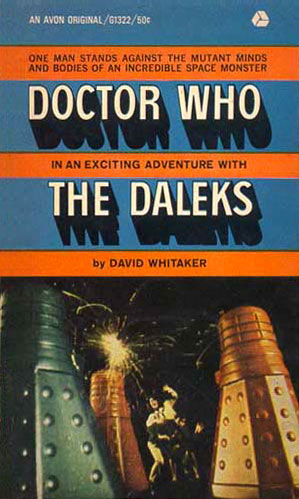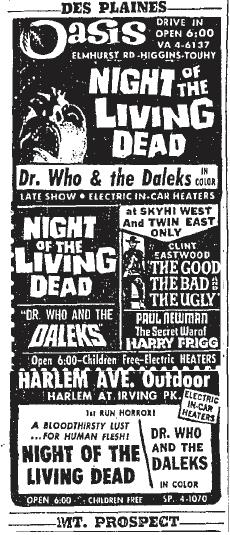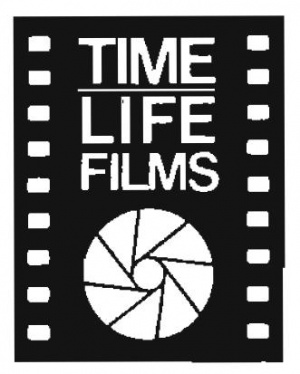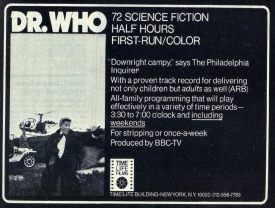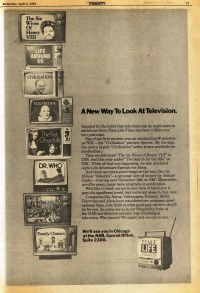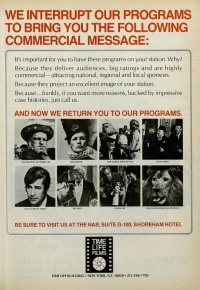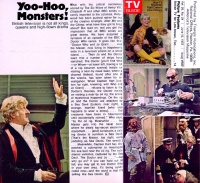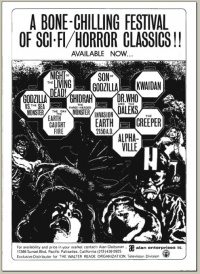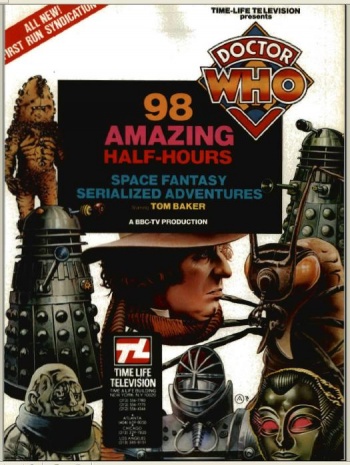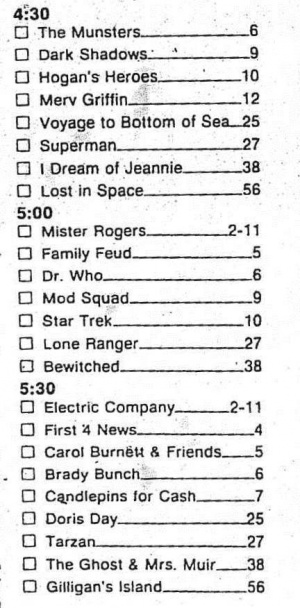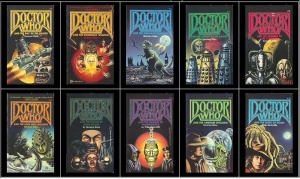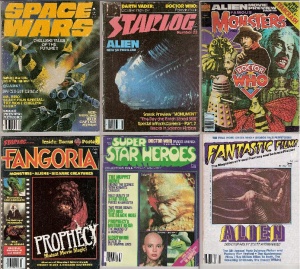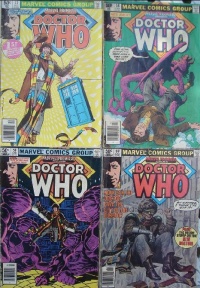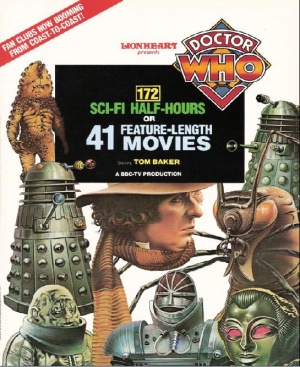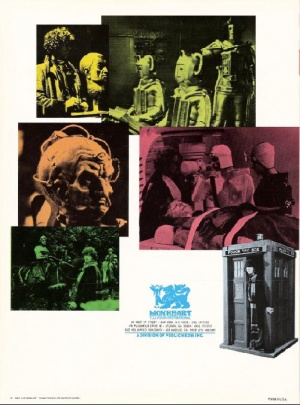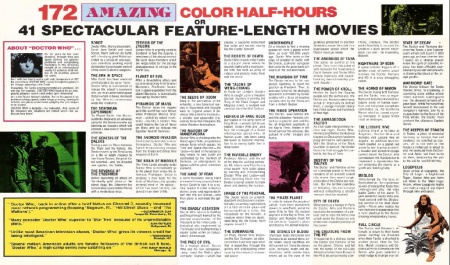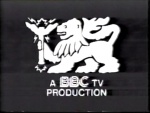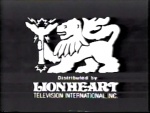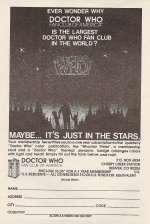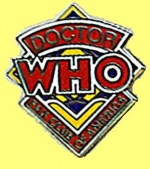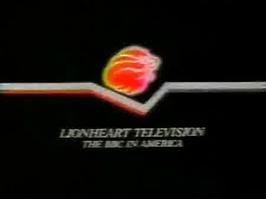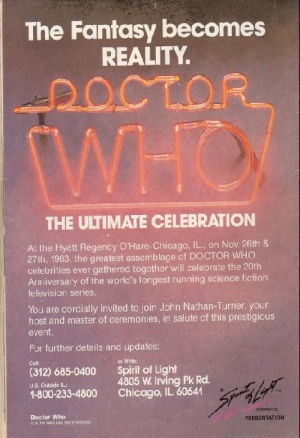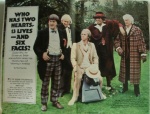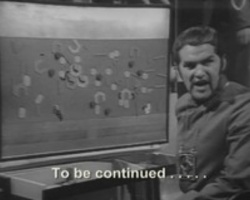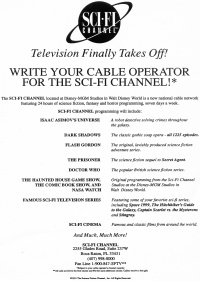Difference between revisions of "United States"
Jon Preddle (talk | contribs) |
John Lavalie (talk | contribs) |
||
| (163 intermediate revisions by 2 users not shown) | |||
| Line 1: | Line 1: | ||
| + | #REDIRECT [[:Category:United States]]'''THE UNITED STATES OF AMERICA''' | ||
| + | {{TOC right}} | ||
| − | The USA was the 34th country to screen '''Doctor Who''', with various commercial, non-commercial, independent, network affiliated and [[wikipedia:PBS|PBS]] stations carrying the series from August 1972. | + | The USA was the '''34th''' country to screen '''Doctor Who''', with various commercial, non-commercial, independent, network affiliated, cable and [[wikipedia:PBS|PBS]] stations ([http://en.wikipedia.org/wiki/List_of_PBS_member_stations CURRENT PBS MEMBER STATIONS]) carrying the series on and off from '''August 1972''' and into the '''2000s'''. |
| − | + | ==Profile== | |
| + | |||
| + | |||
| + | {| {{small-table}} | ||
| + | |- | ||
| + | |'''Country Number (34)'''||1972||[[Selling Doctor Who|SECOND WAVE]] | ||
| + | |- | ||
| + | |'''Region'''||[[:Category:North America|North America]]|| | ||
| + | |- | ||
| + | |'''Television commenced'''||1941|| | ||
| + | |- | ||
| + | |'''Colour System'''||1953||[[Wikipedia:NTSC|NTSC]] | ||
| + | |- | ||
| + | |'''Language/s'''||English|| | ||
| + | |- | ||
| + | |} | ||
| + | |||
| + | |||
| + | ==[[BBC Records]]== | ||
| + | |||
| + | '''The Seventies''' records a sale of '''"(13)"''' stories by 28 February 1977. This tally is for the first batch of [[Jon Pertwee stories]] sold from 1972. | ||
| + | |||
| + | '''The Eighties''' [http://www.shillpages.com/howe/b-dw80s.htm - THE LOST CHAPTERS] records a sale of '''"(118)"''' stories (by 10 February 1987). This tally is made up of: | ||
| + | *'''13''' [[Jon Pertwee stories]] – per the '''1977''' list | ||
| + | *'''41''' [[Tom Baker stories]] | ||
| + | *'''20''' [[Peter Davison stories]] | ||
| + | *'''11''' [[Colin Baker stories]] | ||
| + | *'''17''' [[William Hartnell stories]] – back catalogue | ||
| + | *'''5''' [[Patrick Troughton stories]] - back catalogue | ||
| + | *'''11''' [[Jon Pertwee stories]] - back catalogue | ||
==First Station to screen each Doctor== | ==First Station to screen each Doctor== | ||
| − | * '''Jon Pertwee''' – WPHL, Philadelphia, [[Pennsylvania]] (1972) | + | As best that can be determined, the viewers in the following cities were the first to see each of the first seven Doctors: |
| − | * '''Tom Baker''' – | + | |
| + | * '''Jon Pertwee''' – WPHL, Philadelphia, [[Pennsylvania]] (August 1972) | ||
| + | * '''Tom Baker''' – WTEV, [[Massachusetts]]? (August 1978) | ||
* '''Peter Davison''' – Entertainment Channel ([[US Cable Stations]]) (1982) | * '''Peter Davison''' – Entertainment Channel ([[US Cable Stations]]) (1982) | ||
| − | * ''' | + | * '''Jon Pertwee''' (full repackage) – WILL, [[Illinois]] (December 1984) |
| − | * ''' | + | * '''William Hartnell''' – NJN, [[New Jersey]] (September 1985) |
| − | * ''' | + | * '''Colin Baker''' – NJN, [[New Jersey]] (October 1985) |
| − | * ''' | + | * '''Patrick Troughton''' – NJN, [[New Jersey]] (February 1986) |
| − | * '''Sylvester McCoy''' – | + | * '''Sylvester McCoy''' – NJN, [[New Jersey]]? (January 1988) |
| − | |||
| − | + | =='''DOCTOR WHO IN THE USA''' - Key Dates and Events== | |
| − | + | The following timeline notes the key dates and events in chronological order, from the mid-1960s to the late 1990s. | |
| − | |||
| − | + | ==='''1965-69'''=== | |
| − | + | Having successfully sold '''Doctor Who''' to countries around the world, it was time to exploit the United States of America. It would take a while... | |
| + | [[File:Dr Who Daleks novel.jpg|thumb|1967 Avon novelisation]] | ||
| − | * ''' | + | * '''January 1965''': Several US newspapers feature an article about the new sensation sweeping the UK: '''Dalek-Mania'''. In the '''3 January 1965''' issue of ''The Chicago Tribune'', '''"From Beatleland – It's the Daleks"''', states: "With Christmas over, Britain is resounding to the footsteps of "things from outer space" – Daleks. And the United States could be next ... The Daleks might also invade the United States because the BBC is offering the series, called Dr. Who, for sale here". |
| + | * '''7 July 1965''': In a BBC memo dated 7 July 1965, "U.S.A" is listed as one of several countries to which a package of stories from seasons one and two had been offered. But no one took up the offer... (It is thought that this may have been to NBC, which broadcast '''The Wonderful World of Disney'''; Disney was at the time interested in making an adaptation of the '''Doctor Who''' serial, [[Marco Polo]].) | ||
| − | * | + | * A sale to the United States did not eventuate: in the 1960s, the BBC had found selling to the United States very tough because advertisers and sponsors were often frightened of offending minority groups, and non-US programmes often contained material that could be considered controversial. |
| − | * ''' | + | * '''December 1965''': One of the earliest known exposures of '''Doctor Who''' to American audiences is in issue #36 (cover dated December 1965) of ''Famous Monsters of Filmland'' in the form of a photograph declaring "DR WHO as he appears in the British science-fiction TV series". The only trouble is, it's a photo of an insect-like Menoptra from [[The Web Planet]]! |
| − | + | {{Blank lines|3}} | |
| + | ---- | ||
| − | + | '''PETER CUSHING (DR. WHO)''' | |
| − | + | * The first of the Peter Cushing Dalek movies is released in the UK. Several US magazines carry reviews: | |
| + | ** '''19 May 1966''': ''Variety'' magazine publishes a review of '''Dr Who and the Daleks'''. | ||
| + | ** '''1967''': ''Variety'' magazine publishes a review of '''Daleks Invade the Earth 2150AD''' (sic). | ||
| − | * ''' | + | [[File:Dr Who Daleks posters.JPG|right|250px|thumb|Dr Who and the Daleks, Chicago, re-release December 1968]] |
| + | * '''April 1966''': ''Famous Monsters of Filmland'' issue #38 (cover date April 1966) carries the feature "THE DALEKS INVADE ENGLAND!", which gives a brief overview of the series, and a report from the set of [[The Web Planet]]. | ||
| − | * ''' | + | * '''July 1966''': '''Dr Who and the Daleks''' is released on US screens, distributed by the Continental Group. |
| − | + | * '''1966-1967''': During the second half of 1966 and all of 1967, Terry Nation attempts to sell the concept of a Dalek spin-off series to American networks. The series never goes ahead, but a contractual condition during this period of negotiation is that the BBC can no longer sell Dalek stories to overseas broadcasters... | |
| + | * '''November 1966''': Dell Publishing Co Inc releases a comic adaptation of the first Dalek movie. It retails for 12c. | ||
| − | * | + | * '''March 1967''': ''Famous Monsters of Filmland'' #44 (cover date May 1967) carries the article "THE DALEKS ARE COMING!", which previews the first Dalek movie. |
| − | * | + | *'''1967''': In the summer of 1967, the second feature, '''Daleks Invasion Earth 2150 AD''' hits theatres in the USA. |
| − | * ''' | + | * '''July 1967''': Avon books publishes a US edition of David Whitaker's novelisation, '''Doctor Who in an Exciting Adventure with the Daleks'''. It retails for 50c. |
| − | * ''' | + | * '''October/December 1968''': '''Dr Who and the Daleks''' is re-released in selected theatres (such as in Chicago, [[Illinois]]), on a double bill with the debut release of George Romero's '''[[wikipedia: Night of the Living Dead|Night of the Living Dead]]'''. |
| + | *'''April 1969''': '''Dr Who and the Daleks''' airs on channel 32 in Chicago, [[Illinois]]. | ||
| + | {{Blank lines|3}} | ||
---- | ---- | ||
| − | ====[[Jon Pertwee stories|JON PERTWEE]] | + | ==='''1972'''=== |
| + | [[File:Time Life Films logo.JPG|right|thumb|Time Life Films logo]] | ||
| + | |||
| + | *With the expansion of educational and public television services across the country, all hungry for quality material, the BBC strikes a distribution deal with Time Life Films, the film and television distribution division of media empire, [[Wikipedia: Time-Life Television|Time Life]]. This deal gives Time Life the exclusive rights to sell BBC product throughout the United States and Latin America. The deal includes such fare as '''[[Wikipedia:War_and_Peace_%28TV_series%29|War & Peace]]''' (a co-production between Time Life and BBC), '''The Ascent of Man''', and '''Doctor Who'''. | ||
| + | ** [http://www.closinglogos.com/page/Lionheart+Television TIME-LIFE LOGOS and IDENTS] | ||
| + | * At the time the deal is signed off, the ninth season of the series (starring Jon Pertwee), is drawing to a close. The package offered includes 13 serials, 72 episodes, all in full colour. These episodes are converted from the PAL to NTSC (525-line 2-inch colour video tapes). Pertwee's debut serial, [[Spearhead from Space]] is not included in the package, presumably because it was on colour film: | ||
| + | |||
| + | |||
| + | '''[[Jon Pertwee stories|JON PERTWEE]]''' | ||
| + | |||
13 stories, 72 episodes: | 13 stories, 72 episodes: | ||
| − | + | [[File:Broadcasting 30-4-73.JPG|right|275px|thumb|Time Life Films ad, 30 April 1973]] | |
| + | [[File:Broadcasting 3-4-72.JPG|right|200px|thumb|Time Life Films ad, 3 April 1972 - DR WHO in the sixth TV down]] | ||
| + | [[File: Broadcasting 26-3-1973.JPG|right|200px|thumb|Time Life Films ad, 26 March 1973 - Dr Who in the bottom row, second square]] | ||
| + | [[File:TV Guide June 72.jpg|right|thumb|200px|TV Guide, June 1972]] | ||
{| {{small-table}} | {| {{small-table}} | ||
| Line 94: | Line 146: | ||
| − | - | + | - [[Inferno]] is supplied with an early edit of part five, featuring a scene deleted from the UK broadcast. (This highlights that the BBC still held the original colour tapes of these three seasons as late as 1972.) |
| + | |||
| + | - [[Day of the Daleks]] is called "The Daleks" in publicity material, and subsequently appears under that title in many of the TV billings. | ||
| + | |||
| + | * '''ADVERTISING''': Time Life Films promotes the series in several publications: | ||
| + | ** '''[http://www.davidgleason.com/Broadcasting_Individual_Issues_Guide.htm BROADCASTING MAGAZINE] – 3 April 1972''' features a full-page promo for several BBC programmes, including '''Doctor Who'''. | ||
| + | ** The '''10-16 June 1972''' issue of '''''TV GUIDE''''' has a two-page feature, '''Yoo-Hoo, Monsters!''' introducing viewers to "Dr Who", the Sea Devils and the Master. It reveals that the series was coming in "the fall". | ||
| + | |||
| − | |||
| − | * '''21 | + | * '''21 AUGUST 1972''': '''Doctor Who''' makes its USA TV '''debut''' on WPHL, channel 17, in Philadelphia, [[Pennsylvania]]. |
| + | [[File:WPHLPremiere.JPG|thumb|right|150px|Philadelphia Inquirer billing, Dr Who (Premiere), 21 August 1972]] | ||
| − | |||
| − | + | {{Blank lines|3}} | |
| + | ---- | ||
| − | + | ==='''1973-1978'''=== | |
| − | + | * '''1972-1978''': '''Doctor Who''' airs in Los Angeles, [[California]]; Chicago [[Illinois]], Boston, [[Massachusetts]], etc. | |
| − | * ''' | + | [[File:Broadcasting 25-6-73.JPG|thumb|right|200px|Alan Enterprises Inc Advert, Dr Who and the Daleks / Daleks Invasion of Earth 2150AD, June 1973]] |
| + | * '''1973''': The two Peter Cushing movies are made available to television broadcasters by '''Alan Enterprises Inc'''. | ||
| − | * ''' | + | * '''May 1976''': ''Famous Monsters of Filmland'' (issue #126, cover dated July 1976) features '''"The Funtastic Adventures of DR. WHO"''', an overview of the series that was currently in syndication. (The article liberally pulls its facts and interviews from the 1972 Pan Books / Piccolo edition of ''The Making of Doctor Who''.) |
| + | * '''1976-1977''': Off-air home recordings are taken of [[Doctor Who and the Silurians]], [[The Ambassadors of Death]], [[Terror of the Autons]] and [[The Daemons]], which prove their value in later years... | ||
| − | + | * Producer Philip Hinchcliffe has discussions with BBC management about selling the series to the States. Management decree that the earlier sales were not that successful... | |
| + | {{Blank lines|3}} | ||
| − | + | ---- | |
| − | + | ==='''1978'''=== | |
| − | *'''1978 | + | *'''January 1978''': Following the success of '''Star Wars''', the BBC decides to give '''Doctor Who''' another shot at North America. A new deal is completed with Time Life Television. At the time, the most recent story to air in the UK was [[The Invasion of Time]]. |
* '''12 February 1978''': Tom Baker and a collection of monsters (including a Dalek, a Sontaran, a Wirrn, and a Voc robot) line up outside the American Embassy in Grosvenor Square, London, for a publicity photo shoot. | * '''12 February 1978''': Tom Baker and a collection of monsters (including a Dalek, a Sontaran, a Wirrn, and a Voc robot) line up outside the American Embassy in Grosvenor Square, London, for a publicity photo shoot. | ||
| − | * | + | *'''June 1978''': [[The Hand of Fear]] airs as an omnibus "movie' as a preview story to "test" the series' potential in the US. It is known to have aired on '''WOR''' in [[New York]], and a few months later in '''WPTV''', in West Palm Beach, [[Florida]]. |
| − | * | + | * '''12 June 1978''': [http://www.davidgleason.com/Broadcasting_Individual_Issues_Guide.htm BROADCASTING MAGAZINE] magazine runs a full page ad for "98 Amazing Half-Hours...": |
| − | |||
| − | + | '''[[Tom Baker stories|TOM BAKER]]''' | |
| − | |||
The package consists of 23 stories, 98 episodes: | The package consists of 23 stories, 98 episodes: | ||
| + | |||
| + | [[File:Broadcasting 12-6-78.JPG|350px|right|thumb|1978 Time Life Television ad]] | ||
{| {{small-table}} | {| {{small-table}} | ||
| Line 185: | Line 247: | ||
|} | |} | ||
| − | Many stations screen the stories out of order, usually based on BBC production codes, as listed above. | + | - The stories are edited slightly, and have narration voiced by actor [[wikipedia:Howard da Silva|Howard da Silva]]. |
| + | - Many stations screen the first eight stories out of order, usually based on BBC production codes, as listed above. | ||
| + | - The tape of part one of [[The Brain of Morbius]] is missing sound effects and music cues. | ||
| − | The | + | * The final US station to purchase and air the package of 13 [[Jon Pertwee stories]] is KDIN, in [[Iowa]]. |
| − | * '''1978 | + | * '''1978''': By August, screenings of the [[Jon Pertwee stories]] draw to an end... Less than 20 stations across the United States (plus [[Guam]]) have aired the Jon Pertwee episodes between 1972 and 1978. |
| − | * ''' | + | * '''August 1978''': ''Space Wars'' Magazine (Vol 2/4, cover dated August) carries the feature '''"Dr Who comes to America"''', but this focuses mainly on the Pertwee stories that were still airing in some States (with an episode guide, listing the 13 serials in alphabetical order) and does not mention the impending syndication of the Tom Baker series at all. |
| − | * | + | [[File:WGBH Baker.jpg|thumb|right|First Dr Who billing, 28 August 1978]] |
| + | * '''28 AUGUST 1978''': The [[Tom Baker stories]] appear to have made their '''debut''' on American television on station WTEV, in [[Massachusetts]]. | ||
| − | * | + | * As the fall television season gets under way, as many as '''75''' stations across America screen the "All New" series... |
| − | * '''1978 | + | * '''September 1978''': ''Starlog'' magazine (issue 18, cover dated October) reports that '''Doctor Who''' is now in syndication, and mentions it is due to start on WOR-TV, [[New York]], from 8 October. |
| − | * | + | * According to an unknown undated American publication (but reported on page 182 of ''The Key To Time''; Peter Haining; W H Allen; 1984), many of the initial group stations drop the series due to poor ratings. But others pick it up, and within a year the programme is regularly broadcast on '''92''' stations. Time Life respond, saying that "'''Doctor Who's''' success in America is undeniable!" |
| − | * | + | *'''25 October 1978''': ''Variety'' magazine carries a small review of the "low-budget sci-fi spoof", noting that was screening on WOR-TV in [[New York]]. |
| + | {{Blank lines|3}} | ||
| + | ---- | ||
==='''1979'''=== | ==='''1979'''=== | ||
| − | |||
| − | * '''1979''': | + | * '''April 1979''': Pinnacle Books Inc publishes the first of the American editions of the Target novelisations. They retail for $1.95. Ten titles are published, with the last in March 1980 (although the titles are still reprinted until at least 1982): |
| − | ** ''' | + | [[File:Pinnacle Books.JPG|300px|right|Pinnacle Books]] |
| − | ** ''' | + | **1 [[Day of the Daleks]] |
| − | ** '''Fangoria''' (issue 2, cover dated September) | + | **2 [[Colony in Space|The Doomsday Weapon]] |
| − | ** ''' | + | **3 [[Invasion of the Dinosaurs|The Dinosaur Invasion]] |
| − | ** '''Fantastic Films''' (issue 11, cover dated October | + | **4 [[Genesis of the Daleks]] |
| + | **5 [[Revenge of the Cybermen]] | ||
| + | **6 [[Terror of the Zygons|The Loch Ness Monster]] | ||
| + | **7 [[The Talons of Weng-Chiang]] | ||
| + | **8 [[The Masque of Mandragora]] | ||
| + | **9 [[The Android Invasion]] | ||
| + | **10 [[The Seeds of Doom]] | ||
| + | |||
| + | |||
| + | [[File:USA Magazines.JPG|right|300px|thumb|US genre magazines, 1978-1979, promoting Doctor Who]] | ||
| + | * '''1979 MAGAZINE PUBLICITY''': During '''1979''', many genre magazines promote and support the series: | ||
| + | ** '''''Starlog''''' (issue #23, cover dated June) – article and Episode Guide | ||
| + | ** '''''Famous Monsters of Filmland''''' (issue #155, cover dated July) - cover and article | ||
| + | ** '''''Fangoria''''' (issue #2, cover dated September) – article and POSTER | ||
| + | ** '''''Super Star Heroes''''' (issue #10, cover dated October) – cover, article and Episode Guide | ||
| + | ** '''''Fantastic Films''''' (issue #11, cover dated October) - article | ||
| + | |||
| − | |||
| − | * '''1979 | + | * '''1 December 1979''': The first American '''Doctor Who''' convention is held in LA, with guests Barry Letts, Terrance Dicks, Tom Baker and Graham Williams. |
| + | ** '''PHOTOS''': [http://thomas-stewart-baker.com/americantours.html TOM BAKER In the USA] | ||
| + | {{Blank lines|3}} | ||
| + | ---- | ||
==='''1980'''=== | ==='''1980'''=== | ||
| − | + | [[File:US Marvel.JPG|right|200px|thumb|US Marvel Doctor Who comics]] | |
| − | *'''March 1980''': Elisabeth Sladen and Ian Marter attend a convention in | + | *'''March 1980''': Elisabeth Sladen and Ian Marter attend a convention in Los Angeles. |
* '''1980''': NBC expresses an interest in purchasing the series, but nothing eventuates. | * '''1980''': NBC expresses an interest in purchasing the series, but nothing eventuates. | ||
| Line 228: | Line 312: | ||
*'''August 1980''': NBC contacts the BBC with a view to purchasing the series, but no deal eventuates. | *'''August 1980''': NBC contacts the BBC with a view to purchasing the series, but no deal eventuates. | ||
| − | * '''1980 | + | * '''November 1980''': US Marvel commences publication of a four-issue comic – '''Marvel Premiere Featuring DOCTOR WHO''' (#57-60), with material previously published in '''Doctor Who Magazine''', now in full colour. The last issue is published in June 1981. |
| + | {{Blank lines|3}} | ||
| + | ---- | ||
==='''1981'''=== | ==='''1981'''=== | ||
| + | [[File:Lionheart 1982 a.JPG|thumb|right|300px|1982 Lionheart sales brochure cover]] | ||
| + | [[File:Lionheart 82 c.JPG|thumb|right|300px|1982 Lionheart sales brochure back cover]] | ||
| + | [[File:Lionheart 1982 b.JPG|thumb|right|450px|1982 Lionheart sales brochure internal spread]] | ||
| + | * '''18 March 1981''': Time Life's contract expires. The contract is not renewed because the Film and Television division is in the process of being dissolved. | ||
| − | * ''' | + | * '''April 1981''': Despite its contract coming to an end, Time Life purchases and markets the remaining 18 [[Tom Baker stories]] (74 episodes). These do not have added narration: |
| − | |||
| − | + | '''[[Tom Baker stories|TOM BAKER]] (continued)''' | |
| − | + | 18 stories, 74 episodes: | |
{| {{small-table}} | {| {{small-table}} | ||
| Line 280: | Line 369: | ||
|} | |} | ||
| − | * The first station to buy this package is KOED in [[Oklahoma]]. | + | * '''30 May 1981''': The first station to buy this package is KOED in [[Oklahoma]]. |
| − | * '''1981 | + | *'''July 1981''': The first issue of ''Fantasy Empire'' magazine is published by New Media Publishing Inc (NMP). (It lasts for nearly 20 issues.) |
| − | * '''1981 | + | * '''July 1981''': Pinnacle ceases publishing its '''Doctor Who''' novelisation range. |
| − | * '''14-16 August 1981''': Before he has appeared on screen as the Doctor, Peter Davison makes his first US convention appearance, in Tulsa [[Oklahoma]]. | + | [[File:Lionheart BBC.JPG|right|150px|Lionheart BBC Logo]] |
| + | [[File:Lionheart Inc.JPG|right|150px|Lionheart Inc Logo]] | ||
| + | * By '''August 1981''', '''Lionheart Television International Inc''' has taken over from Time Life as distributor. Lionheart is co-owned by Western World TV (49%), Public Media Inc (49%), and the BBC (2%). New tapes of the earlier [[Tom Baker stories]] are made available, no longer with the da Silva narrations. Omnibus "feature-length movie" editions are also made available of all 41 stories. (Some stations had made their own in-house 'movie' versions of the earlier serials; Lionheart was the first distributor to offer a choice of format.) | ||
| + | ** [http://www.closinglogos.com/page/Lionheart+Television LIONHEART LOGOS and IDENTS] | ||
| + | * '''14-16 August 1981''': Before he has appeared on screen as the Doctor in the UK, Peter Davison makes his first US convention appearance, in Tulsa [[Oklahoma]]. This appearance was reported in ''Fantastic Films'' issue #28 (cover dated April 1982). | ||
| − | * '''1981 | + | * '''December 1981''': Even though the first season of [[Peter Davison stories]] has yet to screen in the UK, those seven serials are pre-sold to the [[US Cable channels|cable station]], The Entertainment Channel. Other stations in the US have to wait until '''1983''' to be able to buy the Davison adventures. |
| + | {{Blank lines|3}} | ||
| + | ---- | ||
==='''1982'''=== | ==='''1982'''=== | ||
| + | [[File:DWFCA DW98.jpg|thumb|right|150px|Doctor Who Fan Club of America advert, DWM 98, March 1985]][[File:DWFCA DW105.jpg|thumb|right|150px|Doctor Who Fan Club of America advert, DWM 105, October 1985]][[File:DWFCA Badge.JPG|thumb|150px|right|DWFCA badge]] | ||
| + | *'''March 1982''': '''"The Doctor Who Fan Club of America"''' is formed in late 1981, based in Denver, [[Colorado]]. On '''21 March 1982''', members from the club helped raised funds for the KRMA PBS station. By '''June 1982''' it boasted 1,200 members. In three months, membership had climbed to 3,000 – making the club the largest '''Doctor Who''' fan organisation in the world. By February '''1983''', it claimed 7,500 members. The club enjoyed a special relationship with the BBC and Lionheart, and produced its own line of merchandise, including unlicensed t-shirts, badges and publications. | ||
| + | **The club fanzine was '''THE [http://fanlore.org/wiki/Whovian_Times WHOVIAN TIMES]''' | ||
| − | * '''1982''': | + | *The first season of [[Peter Davison stories]] airs on [[US Cable channels]] ahead of the rest of the country sometime in early '''1982''': |
| − | |||
| − | |||
| − | + | '''[[Peter Davison stories|PETER DAVISON]]''' | |
| − | + | Seven stories, 26 episodes (also in "movie length" omnibus editions): | |
{| {{small-table}} | {| {{small-table}} | ||
| Line 318: | Line 414: | ||
|} | |} | ||
| − | |||
| − | + | *'''16-18 July 1982''': At the Panopticon West convention in Chicago, John Nathan-Turner announces that "20 markets" had pre-purchased 78 Peter Davison episodes (the equivalent of three seasons of 26 episodes), to be available to pre-purchase from January 1983. | |
| − | * ''' | + | * '''24 October 1982''': [[KRMA]] airs [[Once Upon a Time Lord]], with footage from the Panopticon West convention. |
| − | * ''' | + | * By the end of '''1982''', Lionheart announces that '''Doctor Who''' is watched by '''9 million''' viewers in the US. |
| + | {{Blank lines|3}} | ||
| + | ---- | ||
| − | + | ==='''1983'''=== | |
| − | *''' | + | * '''3/4 April 1983''': At the weekend long Longleat festival on 3 and 4 April 1983, Jon Pertwee announced that his stories were going to be made available again: "I'm delighted to hear yesterday from JNT and the American gentleman who's over here [from Lionheart who] distribute '''Doctor Who''' in America... And I gather that my stories are going to be shown in 1985? Is it 1985? (Looks to JNT, who nods). In 1985, after Peter's 26 and another 26, and then they're taking all mine". |
| − | + | * '''June 1983''': By June, Lionheart releases another package of [[Jon Pertwee stories]]. This package consists of 14 serials, 73 episodes, and features just those serials that exist in their entirely in colour (but only on tape; [[Spearhead from Space]] is not included). The 14 serials are seven that had previously been available in the 1972 package, plus seven 'new' adventures, not previously seen in the States, but which had already been converted to NTSC for broadcast on CKVU and TVO in [[Canada]] in 1976/77: | |
| − | |||
| − | + | '''[[Jon Pertwee stories|JON PERTWEE]] (continued)''' | |
| − | Seven new stories, 34 episodes: | + | Seven new stories, 34 episodes (also in "movie length" omnibus editions): |
| + | [[File:Lionheart TV logos.jpeg|right|250|Lionheart logo]] | ||
{| {{small-table}} | {| {{small-table}} | ||
| Line 356: | Line 453: | ||
|} | |} | ||
| − | |||
| − | + | - This package included a re-issue of: [[Inferno]], [[The Claws of Axos]], [[Colony in Space]], [[Day of the Daleks]], [[The Sea Devils]], [[The Mutants]] and [[The Time Monster]], all of which had been recovered only a few years earlier. At the time the deal was signed off, full colour tapes of [[Inferno]] had just been found in [[Canada]], although copies had yet to make their way back to the BBC in London. ([[The Curse of Peladon]] was not included, presumably on account of the very poor state of the tapes recovered in 1981.) | |
| + | |||
| + | - Jon Pertwee goes on tour around the States to promote this package. | ||
| + | |||
| + | * '''1983''': '''Lyle Stuart Inc''', in Secaucus, New Jersey, becomes the exclusive distributer of Target books in the United States. Target reprints all the available back-titles. They retail for $2.50. | ||
| + | |||
| + | *'''1983''': Scorpio International Ltd releases the video documentary '''[http://www.imdb.com/title/tt0123805/combined '''DOCTOR WHO IN AMERICA]'''. | ||
| − | * '''23 November 1983''': [[The Five Doctors]] makes its world debut | + | * The '''9-15 July 1983''' issue of '''''TV GUIDE''''' has a small half-page feature, '''"Happy Birthday to Who?"''', and mentions the upcoming 20th anniversary in November. |
| + | |||
| + | * '''23 November 1983''': [[The Five Doctors]] makes its world debut – two days ahead of its UK transmission - via a network link-up of at least '''80''' PBS stations across the country: | ||
| − | |||
| − | + | '''[[Peter Davison stories|PETER DAVISON]] (continued)''' | |
| + | [[File:Spirit of Light poster.JPG|right|thumb|The Ultimate Celebration ad]] | ||
| − | One story, | + | One story, 90 minutes: |
{| {{small-table}} | {| {{small-table}} | ||
| Line 374: | Line 478: | ||
|} | |} | ||
| − | |||
| − | + | * As a result of this special screening, '''Doctor Who''' is sold to many more stations, such as KCET in Los Angeles, [[California]]. | |
| − | * ''' | + | * '''26-27 November 1983''': Spirit of Light's '''Doctor Who The Ultimate Celebration''' convention is held in Chicago, [[Illinois]]. |
| + | {{Blank lines|3}} | ||
| + | ---- | ||
| − | + | ==='''1984'''=== | |
| − | |||
| − | |||
| − | |||
| − | |||
| − | |||
| − | |||
| − | *'''1984''': | + | * '''9 January 1984''': '''''TIME''''' magazine carries a feature on '''Doctor Who''' - '''"Who's Who in Outer Space"''' (Read the article [[http://www.time.com/time/magazine/article/0,9171,952321-1,00.html HERE]]). The article declares that the series is seen by '''9.5 million viewers''' in '''112''' markets across the States. |
| − | * '''1984, | + | [[File:TV Guide Feb 1984.JPG|right|thumb|150px|TV Guide February 1984]] |
| + | * The '''18-24 February 1984''' issue of '''''TV GUIDE''''' has a four-page article, '''"WHO HAS TWO HEARTS, 13 LIVES – AND SIX FACES?"'''. This states that '''Doctor Who''' is seen in '''112''' US markets. | ||
| − | * '''1984 | + | *'''Early 1984''': By spring, season 20 starts airing: |
| − | |||
| − | + | '''[[Peter Davison stories|PETER DAVISON]] (continued)''' | |
| − | + | Six stories, 22 episodes (also in "movie length" omnibus editions): | |
{| {{small-table}} | {| {{small-table}} | ||
| Line 413: | Line 512: | ||
|- | |- | ||
|6J||[[The King's Demons]]||2 | |6J||[[The King's Demons]]||2 | ||
| + | |- | ||
| + | |} | ||
| + | |||
| + | |||
| + | *'''April 1984''': Plans to film part of season 22 in New Orleans fall through, so the filming of [[The Two Doctors]] is relocated to Spain. | ||
| + | |||
| + | * The '''2-8 June 1984''' issue of '''''TV GUIDE''''' has a review by Robert MacKenzie, which basically "cheap and tacky" but easy to get hooked on. | ||
| + | |||
| + | * By '''July 1984''', Colin Baker makes his US convention debut in Miami, [[Florida]]. Coverage of this event appears in ''Fantasy Empire'' issue #12. | ||
| + | |||
| + | * '''1984''': By the middle of the year, Lionheart successfully makes a deal to market the existing 17 complete [[William Hartnell stories]] and five [[Patrick Troughton stories]], to add to the forthcoming package of 24 Pertwee serials to be made available in 1985. The sale is reported to have earned the BBC £4.5 million. | ||
| + | |||
| + | * '''October 1984''': Marvel US commences reprints of '''''Doctor Who Magazine''''' comic strips. (This comic series runs for 23 issues between October 1984 and August 1986.) | ||
| + | |||
| + | * '''November 1984''': Season 21 begins screening in the States. Although [[The Twin Dilemma]] has been supplied, stations have been instructed not to air the serial until other [[Colin Baker stories]] are made available in 1985/86: | ||
| + | |||
| + | |||
| + | '''[[Peter Davison stories|PETER DAVISON]] (continued)''' | ||
| + | |||
| + | Six stories, equivalent of 22 episodes (also in "movie length" omnibus editions): | ||
| + | |||
| + | {| {{small-table}} | ||
|- | |- | ||
|6L||[[Warriors of the Deep]]||4 | |6L||[[Warriors of the Deep]]||4 | ||
| Line 428: | Line 549: | ||
|} | |} | ||
| − | + | - For [[Resurrection of the Daleks]], the original four-part version was supplied to Lionheart. However, part two was without music or sound effects. The omnibus "movie" version was similarly affected, but this time it was the entire second half that was missing its music and effects. There were also several extra scenes in these episodes not used in the final UK cut. (In later years, a corrected version with the missing audio was supplied.) | |
| + | |||
| + | {{Blank lines|2}} | ||
| + | |||
| + | * '''December 1984''': As had been announced at Longleat back in '''April 1983''', a full package of [[Jon Pertwee stories]] is released for syndication in the US; although the package was made available from the start of 1985, the first serial actually went to air as early as December 1984. | ||
| + | * (The overall packae of "back-catalogue" material also includes the surviving 17 complete [[William Hartnell stories|William Hartnell]] and five complete [[Patrick Troughton stories]]. (The same three Doctor package had already been sold to [[Australia]] and [[New Zealand]].)) | ||
| + | |||
| + | * The Pertwee package also included four stories that not had been sold to the States before. Since episode three of [[Planet of the Daleks]] was in black and white, the BBC also provided an edited version that re-cut episodes two and four, making the story into a five-part serial. [[Invasion of the Dinosaurs]] was also re-edited because episode one was in black and white, so the opening titles were all re-captioned (e.g. PART TWO was renumbered PART ONE, PART TWO became PART THREE, etc), and the story was issued as a five parter: | ||
| + | |||
| + | |||
| + | '''[[Jon Pertwee stories|JON PERTWEE]] (Repackaged)''' | ||
| + | |||
| + | All 24 stories, 127 episodes issued, with four 'new' stories, equivalent of 20 episodes (also in "movie length" omnibus editions): | ||
| + | |||
| + | {| {{small-table}} | ||
| + | |- | ||
| + | |AAA||[[Spearhead from Space]]||4 | ||
| + | |- | ||
| + | |QQQ||[[Frontier in Space]]||6 | ||
| + | |- | ||
| + | |SSS||[[Planet of the Daleks]]||5 | ||
| + | |- | ||
| + | |WWW||[[Invasion of the Dinosaurs]]||5 | ||
| + | |- | ||
| + | |} | ||
| + | |||
| + | - At the time the 24-story package deal had been signed off in April 1983, [[Frontier in Space]] existed only in black and white. Full colour copies of [[Frontier in Space]] were recovered from [[Australia]] in late 1983 and added to the package. | ||
| + | |||
| + | - It wasn't until 1993 that all six episodes of [[Planet of the Daleks]] were made available for US syndication. | ||
| + | |||
| + | - A full account of the edits made to [[Planet of the Daleks]] can be found [http://homepages.bw.edu/~jcurtis/Z1R0_1.htm HERE] | ||
| + | |||
| + | ** WILL in [[Illinois]] is the first station to screen the Pertwee episodes, from '''4 December 1984'''. | ||
| − | * '''1984 | + | {{Blank lines|2}} |
| + | * '''December 1984''': The spin-off [[K9 and Company]] airs at Christmas, although it is not as widely sold as its parent series. | ||
| + | {{Blank lines|3}} | ||
| + | ---- | ||
==='''1985'''=== | ==='''1985'''=== | ||
| + | |||
| + | * '''9-10 March 1985''': A marathon of the new Pertwee stories airs on WHA, in Madison, [[Wisconsin]]. | ||
* '''May 1985''': '''146''' stations in the US have purchased the series, exposing '''70%''' of the population the United States to the series. | * '''May 1985''': '''146''' stations in the US have purchased the series, exposing '''70%''' of the population the United States to the series. | ||
| − | + | * '''7 September 1985''', the 17 repackaged [[William Hartnell stories]] go into syndication, debuting on the [[New Jersey]] Network: | |
| − | |||
| − | + | '''[[William Hartnell stories|WILLIAM HARTNELL]]''' | |
| − | Seventeen stories, 76 episodes: | + | Seventeen stories, 76 episodes (also in "movie length" omnibus editions): |
{| {{small-table}} | {| {{small-table}} | ||
| Line 482: | Line 639: | ||
|} | |} | ||
| − | + | - The stories are edited into compilations, with the story to story cliffhangers often removed, and new title cards and closing credits created, sometimes displaying a 1984 or 1985 copyright date. | |
| − | + | - It has been reported that the Hartnell to Troughton regeneration sequence was edited onto the end of [[The War Machines]]. (It's possible this wasn't actually done until subsequent repeats in the 1990s…) | |
| − | |||
| − | + | . | |
| + | |||
| + | * '''26 October 1985''': [[New Jersey]] is also the first to screen the [[Colin Baker stories]]. These air on NJN mixed in with the new run of Hartnells and Troughtons. Other stations screen the stories from November, but most stations across the country don't air them until the new year: | ||
| − | |||
| + | '''[[Colin Baker stories|COLIN BAKER]]''' | ||
| − | + | Seven stories, equivalent of 30 half hour episodes (also in "movie length" omnibus editions): | |
{| {{small-table}} | {| {{small-table}} | ||
|- | |- | ||
| − | | | + | |6S||[[The Twin Dilemma]]||4 |
|- | |- | ||
| − | | | + | |6T||[[Attack of the Cybermen]]||2/4 |
|- | |- | ||
| − | | | + | |6V||[[Vengeance on Varos]]||2/4 |
|- | |- | ||
| − | | | + | |6X||[[The Mark of the Rani]]||2/4 |
|- | |- | ||
| − | | | + | |6W||[[The Two Doctors]]||3/6 |
|- | |- | ||
| − | | | + | |6Y||[[Timelash]]||2/4 |
| − | |||
| − | |||
| − | |||
| − | |||
| − | |||
| − | |||
| − | |||
| − | |||
| − | |||
| − | |||
| − | |||
| − | |||
| − | |||
| − | |||
| − | |||
|- | |- | ||
| − | | | + | |6Z||[[Revelation of the Daleks]]||2/4 |
| − | |||
| − | |||
| − | |||
| − | |||
| − | |||
| − | |||
|- | |- | ||
|} | |} | ||
| − | |||
| − | * | + | * Some stations that purchase the Hartnell, Troughton, Pertwee and Colin Baker as a package deal, prefer to schedule the newer Baker stories first, followed by the other three Doctors in order. |
| + | {{Blank lines|3}} | ||
| + | ---- | ||
| − | + | ==='''1986'''=== | |
| − | + | *'''1 February 1986''': [[New Jersey]] Network is the first to screen the package of five surviving [[Patrick Troughton stories]]: | |
| − | |||
| − | + | '''[[Patrick Troughton stories|PATRICK TROUGHTON]]''' | |
| + | [[File:US War Games.JPG|thumb|right|250px|The War Games - Omnibus end of part one "To be continued" caption]] | ||
| + | Five stories, 30 episodes (also in "movie length" omnibus editions): | ||
{| {{small-table}} | {| {{small-table}} | ||
|- | |- | ||
| − | | | + | |TT||[[The Dominators]]||5 |
|- | |- | ||
| − | | | + | |UU||[[The Mind Robber]]||5 |
|- | |- | ||
| − | | | + | |WW||[[The Krotons]]||4 |
|- | |- | ||
| − | | | + | |XX||[[The Seeds of Death]]||6 |
|- | |- | ||
| − | | | + | |ZZ||[[The War Games]]||10 |
| − | |||
| − | |||
| − | |||
| − | |||
|- | |- | ||
|} | |} | ||
| + | - In its omnibus form, [[The War Games]] is issued as a two-parter (episodes one to five, six to ten). | ||
| − | |||
| − | |||
| − | |||
| − | |||
| − | |||
| − | |||
| − | |||
| − | * ''' | + | * '''1986''': The NJN documentary [[Doctor Who's Who's Who]] screens. |
| − | |||
| − | |||
| − | |||
| − | |||
| − | |||
| − | |||
| + | * By '''May 1986''', the BBC buys all the shares in Lionheart Television Inc. The BBC had owned only 2%, the other 98% split 50/50 between Western World TV and Public Media Inc. Lionheart was clearing a profit of US$1million per year. | ||
| − | ''' | + | *<span id="bus"> '''8 May 1986''': Setting off from [[Washington DC]], with Peter Davison and BBC 1 Controller, Michael Grade in attendance, the '''Doctor Who USA Tour''' begins its two-year, multi-city tour (two cities per week). It is hoped that all 181 markets where '''Doctor Who''' is screened across America will be visited. </span> |
| − | * | + | <blockquote> |
| − | * [ | + | * '''DOCTOR WHO USA TOUR ITINERARY''': |
| − | * | + | ** '''May to August 1986''': In its first leg, the tour visits (in no particular order) [[New York]], [[Pennsylvania]], [[New Jersey]], [[Maine]], with Peter Davison in attendance. |
| + | ** During '''September 1986''', Tom Baker and Colin Baker visit (in no particular order) [[Washington DC]], [[Tennessee]], [[Pennsylvania]], [[Georgia]], [[Illinois]], [[Massachusetts]] and [[New York]]. | ||
| + | ** '''September 1986 to February 1987''': The Tour visits (in no particular order) [[New York]], [[New Jersey]], [[Pennsylvania]], [[Minnesota]], [[Maryland]], [[Massachusetts]], [[Tennessee]], [[Louisiana]], [[Alabama]], [[Florida]] and DisneyWorld, with Colin Baker, Jon Pertwee, Peter Davison and Patrick Troughton taking part at various legs of the journey. | ||
| + | **From '''February 1987''', Pertwee is joined by new Doctor Sylvester McCoy, visiting (in no particular order) [[Georgia]], [[Minnesota]], and [[Massachusetts]]. | ||
| + | **'''1987-1988''': The Tour is renamed the '''Doctor Who Celebration & Tour 87-88'''. | ||
| + | ** '''August to December 1987''': The Tour travels westwards, calling in at (in no particular order) [[Washington]] state, [[Iowa]] (with Janet Fielding), [[California]], [[Arizona]], [[New Mexico]], [[Texas]], [[Oklahoma]] and [[Louisiana]]. Pertwee, McCoy and Janet Fielding attend. | ||
| + | **'''May 1988''': The tour ends, having visited some 181 locations over two years. | ||
| + | </blockquote> | ||
| + | [[File:USA Tour.JPG|right|200px|Doctor Who USA Tour]] | ||
| + | '''DOCTOR WHO USA TOUR WEB SITES''': | ||
| + | * [http://www.drwhoexhibitions.co.uk/usatour.htm DOCTOR WHO USA TOUR OVERVIEW] | ||
| + | * [http://www.michaell.org/who/conclips/whotour86.phtml DOCTOR WHO USA TOUR in MINNESOTA, October 1986 1] | ||
| + | * [http://www.michaell.org/who/conclips/whotour286.phtml DOCTOR WHO USA TOUR in MINNESOTA, October 1986, 2] | ||
| + | * [http://www.richardwho.com/exhibitions/USATour/1986/index.asp DOCTOR WHO USA TOUR, 1986] | ||
| + | * [http://www.richardwho.com/exhibitions/USATour/19870228/index.asp DOCTOR WHO USA TOUR in ALABAMA, February 1987] | ||
| + | * [http://www.youtube.com/watch?v=aYRN5EFc_ZA&feature=related USA TOUR IN IOWA REPORT] | ||
| − | * '''1986 | + | * '''July 1986''': By the middle of the year, '''112 '''stations (both commercial and PBS) have purchased the series, with an estimated daily audience of '''10 million''' across the country. |
* '''August 1986''': After 23 issues, the US Marvel comic is cancelled due to falling sales. | * '''August 1986''': After 23 issues, the US Marvel comic is cancelled due to falling sales. | ||
| − | * '''1986''': | + | * '''August to December 1986''': Ballantine Books publishes US editions of the six '''Make Your Own Adventure''' books that had been published by Severn House in the UK, re-branding them as '''Find Your Fate''' books. New covers are painted by Gail Bennett. They retail for $2.50. |
| − | *'''1986''': The North American Doctor Who Appreciation Society (NADWAS) winds up. | + | *'''1986''': The North American Doctor Who Appreciation Society (NADWAS) winds up. |
| + | {{Blank lines|3}} | ||
| + | ---- | ||
==='''1987'''=== | ==='''1987'''=== | ||
| − | * ''' | + | * '''24 January 1987''': [[New Jersey]] Network is the first station to screen [[The Trial of a Time Lord]]: |
| − | |||
| − | |||
| − | |||
| − | |||
| − | |||
| − | |||
| − | |||
| − | + | '''[[Colin Baker stories|COLIN BAKER]] (continued)''' | |
| − | One | + | One/four stories, 14 episodes (also in "movie length" omnibus editions): |
{| {{small-table}} | {| {{small-table}} | ||
| Line 621: | Line 755: | ||
| − | * ''' | + | * '''28 February 1987''': Sylvester McCoy joins John Nathan-Turner and Jon Pertwee on the '''Doctor Who USA Tour''' at Mercer University in Macon, [[Georgia]]; this is his debut public appearance following his casting as the seventh Doctor, three days ahead of his "official" announcement in the UK! |
| + | |||
| + | * '''28 March 1987''': Patrick Troughton dies, while attending a convention in [[Georgia#Columbus|Columbus, Georgia]]. | ||
| + | |||
| + | * '''1987''': Lionheart hikes up the price for '''Doctor Who''', triggering a backlash that sees a number of PBS stations dropping the series, for being too expensive... | ||
| + | |||
| − | *'''1987''': | + | * '''16 May 1987''': Sylvester McCoy makes his first convention appearance in Boston, [[Massachusetts]], with coverage of his visit shown on WGBH. |
| − | * '''1987''': | + | *'''1987''': CBS/FOX, under its Playhouse imprint, begins releasing '''Doctor Who''' stories on home video. |
| − | *'''1987''' | + | * By '''June 1987''', it is reported that '''Doctor Who''' is seen potentially by 74% of the country. By '''September''' it is announced that over '''200''' markets have screened the series. |
| + | * By '''September 1987''', the long-running [[wikipedia:Doctor Who RPG|FASA]] '''Doctor Who''' role-playing game is cancelled. | ||
| + | {{Blank lines|3}} | ||
---- | ---- | ||
| − | ====[[Sylvester McCoy stories | + | ==='''1988'''=== |
| + | |||
| + | * '''1988''': By the start of 1988, more PBS stations have dropped the series. Lionheart tries the tactic of forcing stations who want the new [[Sylvester McCoy stories]] to also buy full runs of older stories - so some stations don't buy either! | ||
| + | |||
| − | + | '''[[Sylvester McCoy stories|SYLVESTER McCOY]]''' | |
| − | + | Four stories, 14 episodes (also in "movie length" omnibus editions): | |
{| {{small-table}} | {| {{small-table}} | ||
| Line 646: | Line 790: | ||
|- | |- | ||
|7G||[[Dragonfire]]||3 | |7G||[[Dragonfire]]||3 | ||
| + | |- | ||
| + | |} | ||
| + | |||
| + | |||
| + | * '''1988''': Lionheart launches '''The Friends of Doctor Who''', the first and only official US '''Doctor Who''' fan club. | ||
| + | |||
| + | * '''1988''': The BBC announces that sales to America have helped generate £27,500,000, an increase of 14% on its 1986-87 income. | ||
| + | |||
| + | * '''19 November 1988''': [[The Making of Doctor Who]] screens on the [[New Jersey Network]]. | ||
| + | {{Blank lines|3}} | ||
| + | ---- | ||
| + | |||
| + | ==='''1989'''=== | ||
| + | |||
| + | * By the middle of the year, the 25th anniversary season goes into syndication: | ||
| + | |||
| + | |||
| + | '''[[Sylvester McCoy stories|SYLVESTER McCOY]] (continued)''' | ||
| + | |||
| + | Four stories, 14 episodes (also in "movie length" omnibus editions): | ||
| + | |||
| + | {| {{small-table}} | ||
|- | |- | ||
|7H||[[Remembrance of the Daleks]]||4 | |7H||[[Remembrance of the Daleks]]||4 | ||
| Line 656: | Line 822: | ||
|- | |- | ||
|} | |} | ||
| − | + | {{Blank lines|3}} | |
| − | + | ---- | |
| − | |||
| − | |||
| − | |||
| − | |||
| − | |||
| − | |||
| − | |||
| − | |||
| − | |||
| − | |||
| − | |||
| − | |||
| − | |||
==='''1990'''=== | ==='''1990'''=== | ||
| − | * '''1990''': The final season | + | * From '''March 1990''': The final season of '''Doctor Who''' goes into syndication, but only a few stations pick it up, such as [[New Jersey]] Network; Houston, [[Texas]], and KTCA in [[Wisconsin]]. Another was possibly KNME in [[New Mexico]]). They are instructed not to air it until 1991. After the stations complain, they are given release to air the stories in 1990: |
| − | |||
| − | + | '''[[Sylvester McCoy stories|SYLVESTER McCOY]] (continued)''' | |
| − | + | Four stories, 14 episodes (also in "movie length" omnibus editions): | |
{| {{small-table}} | {| {{small-table}} | ||
| Line 694: | Line 846: | ||
|} | |} | ||
| + | |||
| + | - For reasons unknown, [[Battlefield]] does not screen on WTTW in Chicago, [[Illinois]]. | ||
| + | {{Blank lines|3}} | ||
| + | ---- | ||
==='''1991-1998'''=== | ==='''1991-1998'''=== | ||
| + | [[File:SciFiChannel-1991.jpg|right|thumb|200px|Sci-Fi Channel flyer]] | ||
| + | * '''1991''': With sales falling, and their contract with PBS expiring in 1992, Lionheart turns to [[US Cable channels]] and other networks. They succeed in selling to the newly-established [[wikipedia:Syfy|SCI-FI Channel]]. The contract with SCI-FI is for only the [[William Hartnell stories]], [[Patrick Troughton stories]] and [[Jon Pertwee stories]]... | ||
| + | |||
| + | * '''24 September 1992''': SCI-FI Channel launches. Promising to start with the [[William Hartnell stories]], they instead show [[Tom Baker stories]] – again... | ||
| − | * ''' | + | *'''1994''': More and more PBS stations do not renew their contracts. [[New Hampshire]]'s WENH in Durham is the last station in New England to still be airing the series, eventually dropping it in June of '''1994'''. |
| − | * ''' | + | * '''1995-96''': Production on the [[TV Movie]] commences. |
| − | |||
| − | + | '''[[Sylvester McCoy stories|SYLVESTER McCOY]] (continued)''' | |
| + | |||
| + | '''[[TV Movie|PAUL McGANN]]''' | ||
| + | |||
| + | TV Movie, 84 minutes: | ||
| + | |||
| + | {| {{small-table}} | ||
| + | |- | ||
| + | |TVM||The [[TV Movie]]||1 | ||
| + | |- | ||
| + | |} | ||
| − | * | + | * '''14 May 1996''': The [[TV Movie]] screens as the '''FOX TUESDAY NIGHT MOVIE'''. |
| + | * '''20 May 1996''': Jon Pertwee dies in [[Connecticut]]. | ||
| + | * The [[TV Movie]] was to have been repeated on '''31 December 1996''', but it was pulled at the eleventh hour. | ||
| + | * '''1998''': By early 1998, only a handful of PBS stations were still regularly screening the series, such as: Des Moines, [[Iowa]]; Denver, [[Colorado]]; San Jose, [[California]]; Baltimore, [[Maryland]], and Cincinnati, [[Ohio]]. | ||
| + | {{Blank lines|3}} | ||
---- | ---- | ||
| − | + | ===Beyond 1998... === | |
| + | |||
| + | * By the turn of the millennium, sales of '''Doctor Who''' had all but dried up, and by '''2001''', '''Doctor Who''' had all but faded from television screens in America... | ||
| + | {{Blank lines|3}} | ||
---- | ---- | ||
| + | ''(The above timeline of events is taken from reports in '''DWM''', '''DWB''', '''Celestial Toyroom''', '''Data Extract''', '''Fantasy Image''', '''Starlog''', '''Doctor Who Marvel (US)''', '''Famous Monsters of Filmland''', '''Fantastic Films''', '''Fangoria''', '''Enterprise Incidents''', '''Enlightenment''', and various online sites.)'' | ||
| + | {{Blank lines|3}} | ||
| + | ---- | ||
==Index of States== | ==Index of States== | ||
| Line 742: | Line 921: | ||
|[[Georgia]]||[[Massachusetts]]||[[New Mexico]]||[[South Dakota]]||[[Wyoming]] | |[[Georgia]]||[[Massachusetts]]||[[New Mexico]]||[[South Dakota]]||[[Wyoming]] | ||
|- | |- | ||
| − | |[[Hawaii]]|| | + | |[[Hawaii]]||||||||[[US Cable channels]] |
|- | |- | ||
|} | |} | ||
| + | |||
| + | * See also [[Guam]] | ||
| + | * See also [[Korea (South)]] (American Forces Network TV) | ||
| + | . | ||
| + | |||
| + | . | ||
| + | |||
| + | ==First Airings by Location== | ||
| − | + | {| {{sortable}} | |
| + | !date!!city!!episode | ||
| + | |- | ||
| + | |1972-08-21|| [[Philadelphia]]||[[Doctor Who and the Silurians]] | ||
| + | |- | ||
| + | |1972-09-15|| [[Orlando]]||[[Doctor Who and the Silurians]] | ||
| + | |- | ||
| + | |1972-09-23|| [[Phoenix]]|| | ||
| + | |- | ||
| + | |1972-11-27||[[Guam]]|| | ||
| + | |- | ||
| + | |1973-06-04|| [[Washington, DC]]||[[Doctor Who and the Silurians]] | ||
| + | |- | ||
| + | |1973-07-16|| [[Florida#Jacksonville|Jacksonville, FL]]||[[Doctor Who and the Silurians]] | ||
| + | |- | ||
| + | |1973-09-21|| [[Tucson]]||[[Doctor Who and the Silurians]] | ||
| + | |- | ||
| + | |1973-09-22|| [[San Francisco]]|| | ||
| + | |- | ||
| + | |1973-12-03|| [[Anchorage]]|| | ||
| + | |- | ||
| + | |1974-04-06|| [[Iowa]] (statewide)||[[The Ambassadors of Death]] | ||
| + | |- | ||
| + | |1975-06-30|| [[Nebraska#Nebraska Television Network (NTV)|Nebraska]] (NTV)|| | ||
| + | |- | ||
| + | |1975-07-01|| [[Los Angeles]]||[[Doctor Who and the Silurians]] | ||
| + | |- | ||
| + | |1975-09-29|| [[Chicago]]||[[The Mutants]] | ||
| + | |- | ||
| + | |1976-01-05|| [[Boston]]||[[Doctor Who and the Silurians]] | ||
| + | |- | ||
| + | |1976-10-11|| [[Rochester]]||[[Doctor Who and the Silurians]] | ||
| + | |- | ||
| + | |1977-07-06|| [[Scranton]]||[[Doctor Who and the Silurians]] | ||
| + | |- | ||
| + | |1978-09-01|| [[West Palm Beach]]||[[The Hand of Fear]] | ||
| + | |- | ||
| + | |1978-09-23|| [[Milwaukee]]|| | ||
| + | |- | ||
| + | |1978-10-07|| [[New York]]||[[Robot]]? | ||
| + | |- | ||
| + | |1978-10-07|| [[Oklahoma]] (statewide)||[[Robot]] | ||
| + | |- | ||
| + | |1979-03-05|| [[Columbus|Columbus, OH]]|| | ||
| + | |- | ||
| + | |1979-05-07|| [[Miami]]|| | ||
| + | |- | ||
| + | |1979-06-11|| [[Kansas City]]||[[Terror of the Zygons]] | ||
| + | |- | ||
| + | |1979-06-11|| [[Syracuse]]||[[Robot]] | ||
| + | |- | ||
| + | |1981-01-03|| [[New Orleans]]||[[Robot]] | ||
| + | |- | ||
| + | |1981-01-10|| [[West Virginia]] (statewide)|| | ||
| + | |- | ||
| + | |1981-04-15|| [[Redding|Redding, CA]]|| | ||
| + | |- | ||
| + | |1981-04-26|| [[Denver]]||[[Robot]]? | ||
| + | |- | ||
| + | |1981-06-01|| [[Hutchinson]]||[[Robot]]? | ||
| + | |- | ||
| + | |1981-04-13|| [[San Jose]]||[[Robot]]? | ||
| + | |- | ||
| + | |1981-06-01|| [[Mississippi]] (statewide)|| | ||
| + | |- | ||
| + | |1981-11-21|| [[Tampa]]|| | ||
| + | |- | ||
| + | |1982-02-01|| [[Urbana]]||[[Robot]] | ||
| + | |- | ||
| + | |1982-07-01|| [[Louisiana]] (LPB)|| | ||
| + | |- | ||
| + | |1982-10-04|| [[Topeka]]||[[Robot]] | ||
| + | |- | ||
| + | |1982-07-12|| [[Durham, NC|Durham]]|| | ||
| + | |- | ||
| + | |1982-10-11|| [[Texas#Austin / San Antonio|Austin/San Antonio]]|| | ||
| + | |- | ||
| + | |1983-01-02|| [[St. Louis]]|| | ||
| + | |- | ||
| + | |1983-03-18|| [[Madison]]|| | ||
| + | |- | ||
| + | |1983-05-09|| [[Spokane]]|| | ||
| + | |- | ||
| + | |1983-08-27|| [[Nebraska#Nebraska Educational Telecommunications (NET)|Nebraska]] (NET)||[[Robot]] | ||
| + | |- | ||
| + | |1983-11-23|| [[Georgia]] (statewide)||[[The Five Doctors]] | ||
| + | |- | ||
| + | |1983-11-23|| [[New Jersey]] (statewide)||[[The Five Doctors]] | ||
| + | |- | ||
| + | |1983-11-23|| [[Peoria]]||[[The Five Doctors]] | ||
| + | |- | ||
| + | |1984-10-01|| [[Lehigh Valley|Lehigh Valley, PA]]||[[Robot]] | ||
| + | |- | ||
| + | |1985-11-01|| [[East Lansing]]||[[Robot]] | ||
| + | | | ||
| + | |} | ||
| + | |||
| + | |||
| + | . | ||
| + | |||
| + | . | ||
==Media== | ==Media== | ||
| Line 753: | Line 1,040: | ||
* PLEDGE DRIVES and PROMOS: [http://www.youtube.com/results?search_query=pbs+pledge+drive+doctor+who&aq=f DOCTOR WHO Pledge Drives and other Promos] | * PLEDGE DRIVES and PROMOS: [http://www.youtube.com/results?search_query=pbs+pledge+drive+doctor+who&aq=f DOCTOR WHO Pledge Drives and other Promos] | ||
| − | * PLEDGE | + | * PLEDGE DRIVES and PROMOS: [http://www.youtube.com/results?search_query=doctor+who+pbs&aq=0 PBS and other Pledge Drives and Promos] |
| + | . | ||
| + | ==America in Doctor Who== | ||
| + | |||
| + | During its original run, from 1963 to 1996, '''Doctor Who''' featured quite a few references to the United States of America. So, sit back and make yourself comfy: | ||
| + | |||
| + | *'''Doctor Who''' debuted the night of the day following President John F. Kennedy's assassination... | ||
| + | *[[An Unearthly Child]]: Barbara says that the United States has a decimal system for currency, and the Doctor reminds Susan of the American Indians seeing the first steam trains. | ||
| + | *[[The Dalek Invasion of Earth]]: Barbara refers to the Boston Tea Party, and to General Lee and the Fifth Cavalry. | ||
| + | *[[The Romans]]: The Doctor mentions he once trained the Mountain Mauler of [[Montana]]. | ||
| + | *[[The Chase]]: Ian selects Lincoln's 19th November 1863 Gettysburg address on the time / space visualiser. The TARDIS lands on the viewing platform of the Empire State Building in New York City. Cheesy American accents are given by the non-American actors who appear in the scene: Arne Gordon as the tourist guide and companion-to-be Peter Purves as the [[Alabama]] hillbilly Morton Dill, who thinks the Doctor is from Hollywood. He mentions Cheyenne Bodie, (from the television series, '''Cheyenne'''). Later the same episode, the TARDIS and the Daleks land on the deck of the Mary Celeste, which is crewed by (ersatz) Americans. | ||
| + | *[[The Time Meddler]]: Vicki mentions her visit to [[New York]]. | ||
| + | *[[The Daleks' Master Plan]]: The second half of episode 7 is set in a Hollywood film studio. There are references to real actors Douglas Fairbanks and Bing Crosby. | ||
| + | *[[The Gunfighters]]: Set in Tombstone, [[Arizona]]. The entire cast is playing Americans, and in some cases very poorly! With the exception of Shane Rimmer, the rest of the cast is British. There are references to place such as [[Alabama]], Fort Griffin, [[Montana]], [[New Mexico]] and Dodge City. The Doctor refers to westerns actor, Tom Mix. Outlaws Billy the Kid and Jesse James also get name-checked. | ||
| + | *[[The War Machines]]: One of the reporters at the Royal Scientific Club, Roy Stone (played by Ric Felgate), is from the (fictitious) ''New York Sketch''. A second reporter (Carl Conway) files a report to "Johnny" in [[New York]] in a later episode. WOTAN is to be connected with computers located at the Whitehouse, and the Telstar satellite. [[Washington DC]] is the second city to fall under WOTAN's control. | ||
| + | *[[The Tenth Planet]]: Robert Beatty plays the American General Cutler (with an authentic accent given that Beatty is Canadian), Callen Angel his son Terry, and John Brandon is billed as the American Sergeant. Astronaut Williams is played by black actor Earl Cameron. There are other minor American characters at the snow-base. The ZEUS IV capsule flies over San Francisco and [[Hawaii]]. The Washington Television News reports on the arrival of Mondas. The Mount Palomar observatory also reports sightings. Ben sees part of a Western movie on the film projector he activates to blind one of the Cybermen. Ben calls Polly "Nanook of the North" (after the 1922 film about Eskimos of the same name?) | ||
| + | *[[The Moonbase]]: Surprisingly none of the moonbase crew is American. The Hawaiian Islands and Miami are threatened when the Gravitron fails. Ben mentions Harry Houdini, an American magician, escapologist and illusionist. | ||
| + | *[[The Tomb of the Cybermen]]: Astronauts Ted Rogers (Alan Jones), Jim Callum (Clive Merrison) and Hopper (George Roubicek) are (it would seem from their very authentic accents!) Americans. | ||
| + | *[[The Ice Warriors]]: There was an ioniser base in America. | ||
| + | *[[The Enemy of the World]]: Salamander's favourite wine comes from [[Alaska]]. The announcer at the conference in episode one has an American accent. | ||
| + | *[[The Web of Fear]]: There is a poster for the 1967 film '''"In The Heat Of The Night"''' in the underground tunnels. Anne Travers was in America when her father sent for her. | ||
| + | *[[The Invasion]]: The Travers have gone to live in the States for a year. [[New York]] goes "off air" following the Cyberman invasion. | ||
| + | *[[The Seeds of Death]]: [[New York]] and [[Washington]] (DC?) are two of the T-Mat locations. T-Mat HQ is located in [[New York]]. | ||
| + | *[[The Space Pirates]]: Major Warne (Donald Gee) and Milo Clancey (Gordon Gostelow) are American. | ||
| + | *[[The War Games]]: One of the war time zones is the American Civil War, with characters such as Leroy (Leslie Schofield), Harper (Rudolph Walker), Thompson (Bill Hutchinson) and Riley (Terry Adams). The alien von Weich (David Garfield) adopts a Southern accent from time to time. | ||
| + | *[[Spearhead from Space]]: The Brigadier mentions the Institute of Space Studies in Baltimore. At Madame Tussaud's wax museum we see facsimiles of Presidents Richard Nixon, George Washington, John F. Kennedy, Ike Eisenhower, Lyndon B. Johnson, F. D. Roosevelt and Abraham Lincoln. | ||
| + | *[[The Ambassadors of Death]]: The American Space Agency launches an unmanned satellite. There is also a mention of Houston ([[Texas]]). | ||
| + | *[[Inferno]]: The Doctor mentions comic superhero ''Batman''. | ||
| + | *[[The Mind of Evil]]: Senator Alcott (Tommy Duggan) is America's representative at the first World Peace Conference. | ||
| + | *[[The Claws of Axos]]: Bill Filer (Paul Grist) has come from the States to investigate the Master. A reference is made to Cape Kennedy. Axonite is distributed to [[New York]], [[Washington DC]] and the Pentagon. | ||
| + | *[[Day of the Daleks]]: One of the delegates at the conference is American (one of the cars is flying a US flag). | ||
| + | *[[The Time Monster]]: Stuart Hyde says "Good thinking, Batman", a possible reference to the 1960s '''Batman''' TV series. | ||
| + | *[[The Three Doctors]]: Dr Tyler (Rex Robinson) mentions NASA, Cape Kennedy and Houston. | ||
| + | *[[Carnival of Monsters]]: Clare Daly mentions actor/dancer Fred Astaire. The Doctor once boxed with John L. Sullivan, a famous American boxer. There is also mention of the ''Mary Celeste'' (see [[The Chase]] above). | ||
| + | *[[Frontier in Space]]: American actor Ramsay Williams has a brief appearance as Congressman Brook who wants war against the Draconians. With the story set in 2540, the fact that there is a Congress suggests that the American political structure is pretty much the same in the 26th century as it is in the 20th. There is a mention of riots in Los Angeles. | ||
| + | *[[The Green Death]]: BOSS plans to link up to the computer at Global Chemicals' [[New York]] office. | ||
| + | *[[The Time Warrior]]: Lavinia Smith is on a lecture tour of America. | ||
| + | *[[Planet of the Spiders]]: The Doctor refers to Harry Houdini. | ||
| + | *[[Robot]]: Mention is made of Fort Knox, the gold reserve located in the States. The United States is one of the super-powers that had given its destructor codes to Britain. | ||
| + | *[[Revenge of the Cybermen]]: The Doctor mentions Houdini again. | ||
| + | *[[Terror of the Zygons]]: Tony Sibbald (another Canadian actor) plays Huckle from the apparently American Hibernian Oil Company Ltd. | ||
| + | *[[The Android Invasion]]: The ''Mary Celeste'' gets yet another mention. | ||
| + | *[[The Brain of Morbius]]: The Doctor mentions the Sargasso Sea, off the east coast of the States. | ||
| + | *[[The Seeds of Doom]]: The Doctor mentions and quotes American humorist Franklin Adams (1881 to 1860). | ||
| + | *[[The Face of Evil]]: The Doctor quotes (or misquotes!) 1930s' feminist Gertrude Stein. | ||
| + | *[[The Stones of Blood]]: The Doctor says he has met Albert Einstein. Although the noted scientist was born in Germany, he lived in the States from 1933 until his death in 1955. Emelia Rumford once lectured in [[New York]]. She also mentions Princeton. The Doctor tells her that robot dogs are all the rage in Trenton, [[New Jersey]]. | ||
| + | *[[The Horns of Nimon]]: The Doctor likens the Gravity Whirlpool to the Sargasso Sea. | ||
| + | *[[K9 and Company]]: The Cornell University Press in [[New York]] invited Sarah's Aunt Lavinia went on a lecture tour of the States. | ||
| + | *[[Time-Flight]]: The first missing Concorde was flying from [[New York]] to London. | ||
| + | *[[Mawdryn Undead]]: By 1983 Harry Sullivan was working for NATO, the North Atlantic Treaty Organisation, which includes USA. Tegan mentions the ''Mary Celeste''. | ||
| + | *[[Enlightenment]]: Jackson mentions a racing vessel called "The America". | ||
| + | *[[Planet of Fire]]: This story introduces Perpugilliam (Peri) Brown (Nicola Bryant), who lives in Pasadena, California (as stated on her passport). In that story we meet her step-father Howard Foster (Dallas Adams). Peri mentions her mother, a Mrs van Gysegham, an octogenarian from Miami Beach, and the Albuquerque Women's League. Peri says she has cashed in her return ticket to [[New York]]. | ||
| + | *[[Attack of the Cybermen]]: Peri refers to the Lone Ranger. | ||
| + | *[[The Mark of the Rani]]: The Rani once visited the period of the American Civil War. | ||
| + | *[[The Two Doctors]]: The Doctor refers to Columbus' discovery of America. | ||
| + | *[[Revelation of the Daleks]]: The DJ says he has modelled his patter on the DJs of Earth. He plays "Swinging 60s'" and "good old 50s' Earthtime Rock 'N' Roll", including Jimi Hendrix and Elvis Presley. Given that he also refers to the United States of America by name, it would seem that the USA still exists even that far in the future. There is a poster of Marilyn Munroe in the DJ's studio. The Doctor says that America doesn't have the monopoly in bad taste. | ||
| + | *[[The Trial of a Time Lord]]: American author Herman Melville wrote ''Moby Dick''. | ||
| + | *[[Time and the Rani]]: Albert Einstein is kidnapped by the Rani. The Doctor confirms that Strange Matter was discovered by a Princeton scientist in 1984. The Doctor mentions Elvis Presley. | ||
| + | *[[Delta and the Bannermen]]: The late American actor Stubby Kaye (at the time, the only '''Doctor Who''' actor to have a star on the Hollywood Walk of Fame!) appears as Weismuller, and Morgan Dearne as the dim-witted Hawk, both posted in Wales in search of a missing American space satellite launched from Cape Canaveral. They contact the President at the Whitehouse in [[Washington DC]]. The Navarino Nostalgia tours regularly visit Disneyland of 1959. Many of the songs heard are from America. Hawk listens to the "Voice of America" radio station. | ||
| + | *[[Dragonfire]] to [[Survival]]: The patches on Ace's bomber jacket illustrate several American icons: on the right sleeve is a patch for the ''Enterprise'' landing-test shuttle (1977), a small 'smiley-face- with-blood' pin from the ''Watchmen'' graphic novel. On the right breast is a pin with the American flag, and a patch for the space shuttle Atlantis (1985). On the left breast is a patch for the doomed Challenger shuttle (1986), and a smaller pin in the shape of a space shuttle. On the left sleeve there is a small badge of ''Spiderman'', a large patch for the American telephone company Bell Atlantic, and a US Paratrooper patch. | ||
| + | *[[Remembrance of the Daleks]]: Both president John F. Kennedy and human rights activist Martin Luther King are heard in the opening moments of this serial. Elvis Presley features on the jukebox. | ||
| + | *[[The Happiness Patrol]]: The second of several Season 25 Americans appears in the form of Earl Sigma, a travelling musician, played by Richard Sharp. | ||
| + | *[[Silver Nemesis]]: The third American of Season 25 is Mrs Remington from [[Virginia]] (American actress Dolores Gray). The Doctor mentions that Nemesis was influential in the assassination of Kennedy in 1963. | ||
| + | *[[The Greatest Show in the Galaxy]]: American actor Ricco Ross plays the rapping Ringmaster. | ||
| + | *[[The Curse of Fenric]]: Jean and Phyllis name Hollywood actresses, Lana Turner, Betty Grable and Jane Russell. | ||
| + | *[[Survival]]: "Darth Vader", the brain-dead plumber, was married to Flo. A '''Land of the Giants''' annual is visible in the bric-a-brac stall. | ||
| + | *[[TV Movie]]: Set in San Francisco 1999 (although filmed in Vancouver, [[Canada]]), apart from the Doctor, all the other characters are American, played by American or Canadian actors. The Doctor has previously been to San Francisco, both before and after 1999. | ||
| + | *''Phew!'' | ||
==Links== | ==Links== | ||
| Line 770: | Line 1,124: | ||
**[[Colin Baker stories]] | **[[Colin Baker stories]] | ||
**[[Sylvester McCoy stories]] | **[[Sylvester McCoy stories]] | ||
| − | + | **[[TV Movie|Paul McGann movie]] | |
| − | [[ | ||
Latest revision as of 21:26, 21 February 2012
Redirect to:
THE UNITED STATES OF AMERICA
The USA was the 34th country to screen Doctor Who, with various commercial, non-commercial, independent, network affiliated, cable and PBS stations (CURRENT PBS MEMBER STATIONS) carrying the series on and off from August 1972 and into the 2000s.
Profile
| Country Number (34) | 1972 | SECOND WAVE |
| Region | North America | |
| Television commenced | 1941 | |
| Colour System | 1953 | NTSC |
| Language/s | English |
BBC Records
The Seventies records a sale of "(13)" stories by 28 February 1977. This tally is for the first batch of Jon Pertwee stories sold from 1972.
The Eighties - THE LOST CHAPTERS records a sale of "(118)" stories (by 10 February 1987). This tally is made up of:
- 13 Jon Pertwee stories – per the 1977 list
- 41 Tom Baker stories
- 20 Peter Davison stories
- 11 Colin Baker stories
- 17 William Hartnell stories – back catalogue
- 5 Patrick Troughton stories - back catalogue
- 11 Jon Pertwee stories - back catalogue
First Station to screen each Doctor
As best that can be determined, the viewers in the following cities were the first to see each of the first seven Doctors:
- Jon Pertwee – WPHL, Philadelphia, Pennsylvania (August 1972)
- Tom Baker – WTEV, Massachusetts? (August 1978)
- Peter Davison – Entertainment Channel (US Cable Stations) (1982)
- Jon Pertwee (full repackage) – WILL, Illinois (December 1984)
- William Hartnell – NJN, New Jersey (September 1985)
- Colin Baker – NJN, New Jersey (October 1985)
- Patrick Troughton – NJN, New Jersey (February 1986)
- Sylvester McCoy – NJN, New Jersey? (January 1988)
DOCTOR WHO IN THE USA - Key Dates and Events
The following timeline notes the key dates and events in chronological order, from the mid-1960s to the late 1990s.
1965-69
Having successfully sold Doctor Who to countries around the world, it was time to exploit the United States of America. It would take a while...
- January 1965: Several US newspapers feature an article about the new sensation sweeping the UK: Dalek-Mania. In the 3 January 1965 issue of The Chicago Tribune, "From Beatleland – It's the Daleks", states: "With Christmas over, Britain is resounding to the footsteps of "things from outer space" – Daleks. And the United States could be next ... The Daleks might also invade the United States because the BBC is offering the series, called Dr. Who, for sale here".
- 7 July 1965: In a BBC memo dated 7 July 1965, "U.S.A" is listed as one of several countries to which a package of stories from seasons one and two had been offered. But no one took up the offer... (It is thought that this may have been to NBC, which broadcast The Wonderful World of Disney; Disney was at the time interested in making an adaptation of the Doctor Who serial, Marco Polo.)
- A sale to the United States did not eventuate: in the 1960s, the BBC had found selling to the United States very tough because advertisers and sponsors were often frightened of offending minority groups, and non-US programmes often contained material that could be considered controversial.
- December 1965: One of the earliest known exposures of Doctor Who to American audiences is in issue #36 (cover dated December 1965) of Famous Monsters of Filmland in the form of a photograph declaring "DR WHO as he appears in the British science-fiction TV series". The only trouble is, it's a photo of an insect-like Menoptra from The Web Planet!
PETER CUSHING (DR. WHO)
- The first of the Peter Cushing Dalek movies is released in the UK. Several US magazines carry reviews:
- 19 May 1966: Variety magazine publishes a review of Dr Who and the Daleks.
- 1967: Variety magazine publishes a review of Daleks Invade the Earth 2150AD (sic).
- April 1966: Famous Monsters of Filmland issue #38 (cover date April 1966) carries the feature "THE DALEKS INVADE ENGLAND!", which gives a brief overview of the series, and a report from the set of The Web Planet.
- July 1966: Dr Who and the Daleks is released on US screens, distributed by the Continental Group.
- 1966-1967: During the second half of 1966 and all of 1967, Terry Nation attempts to sell the concept of a Dalek spin-off series to American networks. The series never goes ahead, but a contractual condition during this period of negotiation is that the BBC can no longer sell Dalek stories to overseas broadcasters...
- November 1966: Dell Publishing Co Inc releases a comic adaptation of the first Dalek movie. It retails for 12c.
- March 1967: Famous Monsters of Filmland #44 (cover date May 1967) carries the article "THE DALEKS ARE COMING!", which previews the first Dalek movie.
- 1967: In the summer of 1967, the second feature, Daleks Invasion Earth 2150 AD hits theatres in the USA.
- July 1967: Avon books publishes a US edition of David Whitaker's novelisation, Doctor Who in an Exciting Adventure with the Daleks. It retails for 50c.
- October/December 1968: Dr Who and the Daleks is re-released in selected theatres (such as in Chicago, Illinois), on a double bill with the debut release of George Romero's Night of the Living Dead.
- April 1969: Dr Who and the Daleks airs on channel 32 in Chicago, Illinois.
1972
- With the expansion of educational and public television services across the country, all hungry for quality material, the BBC strikes a distribution deal with Time Life Films, the film and television distribution division of media empire, Time Life. This deal gives Time Life the exclusive rights to sell BBC product throughout the United States and Latin America. The deal includes such fare as War & Peace (a co-production between Time Life and BBC), The Ascent of Man, and Doctor Who.
- At the time the deal is signed off, the ninth season of the series (starring Jon Pertwee), is drawing to a close. The package offered includes 13 serials, 72 episodes, all in full colour. These episodes are converted from the PAL to NTSC (525-line 2-inch colour video tapes). Pertwee's debut serial, Spearhead from Space is not included in the package, presumably because it was on colour film:
13 stories, 72 episodes:
| BBB | Doctor Who and the Silurians | 7 |
| CCC | The Ambassadors of Death | 7 |
| DDD | Inferno | 7 |
| EEE | Terror of the Autons | 4 |
| FFF | The Mind of Evil | 6 |
| GGG | The Claws of Axos | 4 |
| HHH | Colony in Space | 6 |
| JJJ | The Daemons | 5 |
| KKK | Day of the Daleks | 4 |
| MMM | The Curse of Peladon | 4 |
| LLL | The Sea Devils | 6 |
| NNN | The Mutants | 6 |
| OOO | The Time Monster | 6 |
- Inferno is supplied with an early edit of part five, featuring a scene deleted from the UK broadcast. (This highlights that the BBC still held the original colour tapes of these three seasons as late as 1972.)
- Day of the Daleks is called "The Daleks" in publicity material, and subsequently appears under that title in many of the TV billings.
- ADVERTISING: Time Life Films promotes the series in several publications:
- BROADCASTING MAGAZINE – 3 April 1972 features a full-page promo for several BBC programmes, including Doctor Who.
- The 10-16 June 1972 issue of TV GUIDE has a two-page feature, Yoo-Hoo, Monsters! introducing viewers to "Dr Who", the Sea Devils and the Master. It reveals that the series was coming in "the fall".
- 21 AUGUST 1972: Doctor Who makes its USA TV debut on WPHL, channel 17, in Philadelphia, Pennsylvania.
1973-1978
- 1972-1978: Doctor Who airs in Los Angeles, California; Chicago Illinois, Boston, Massachusetts, etc.
- 1973: The two Peter Cushing movies are made available to television broadcasters by Alan Enterprises Inc.
- May 1976: Famous Monsters of Filmland (issue #126, cover dated July 1976) features "The Funtastic Adventures of DR. WHO", an overview of the series that was currently in syndication. (The article liberally pulls its facts and interviews from the 1972 Pan Books / Piccolo edition of The Making of Doctor Who.)
- 1976-1977: Off-air home recordings are taken of Doctor Who and the Silurians, The Ambassadors of Death, Terror of the Autons and The Daemons, which prove their value in later years...
- Producer Philip Hinchcliffe has discussions with BBC management about selling the series to the States. Management decree that the earlier sales were not that successful...
1978
- January 1978: Following the success of Star Wars, the BBC decides to give Doctor Who another shot at North America. A new deal is completed with Time Life Television. At the time, the most recent story to air in the UK was The Invasion of Time.
- 12 February 1978: Tom Baker and a collection of monsters (including a Dalek, a Sontaran, a Wirrn, and a Voc robot) line up outside the American Embassy in Grosvenor Square, London, for a publicity photo shoot.
- June 1978: The Hand of Fear airs as an omnibus "movie' as a preview story to "test" the series' potential in the US. It is known to have aired on WOR in New York, and a few months later in WPTV, in West Palm Beach, Florida.
- 12 June 1978: BROADCASTING MAGAZINE magazine runs a full page ad for "98 Amazing Half-Hours...":
The package consists of 23 stories, 98 episodes:
| 4A | Robot | 4 |
| 4B | The Sontaran Experiment | 2 |
| 4C | The Ark in Space | 4 |
| 4D | Revenge of the Cybermen | 4 |
| 4E | Genesis of the Daleks | 6 |
| 4F | Terror of the Zygons | 4 |
| 4G | Pyramids of Mars | 4 |
| 4H | Planet of Evil | 4 |
| 4J | The Android Invasion | 4 |
| 4K | The Brain of Morbius | 4 |
| 4L | The Seeds of Doom | 6 |
| 4M | The Masque of Mandragora | 4 |
| 4N | The Hand of Fear | 4 |
| 4P | The Deadly Assassin | 4 |
| 4Q | The Face of Evil | 4 |
| 4R | The Robots of Death | 4 |
| 4S | The Talons of Weng-Chiang | 6 |
| 4V | Horror of Fang Rock | 4 |
| 4T | The Invisible Enemy | 4 |
| 4X | Image of the Fendahl | 4 |
| 4W | The Sun Makers | 4 |
| 4Y | Underworld | 4 |
| 4Z | The Invasion of Time | 6 |
- The stories are edited slightly, and have narration voiced by actor Howard da Silva. - Many stations screen the first eight stories out of order, usually based on BBC production codes, as listed above. - The tape of part one of The Brain of Morbius is missing sound effects and music cues.
- The final US station to purchase and air the package of 13 Jon Pertwee stories is KDIN, in Iowa.
- 1978: By August, screenings of the Jon Pertwee stories draw to an end... Less than 20 stations across the United States (plus Guam) have aired the Jon Pertwee episodes between 1972 and 1978.
- August 1978: Space Wars Magazine (Vol 2/4, cover dated August) carries the feature "Dr Who comes to America", but this focuses mainly on the Pertwee stories that were still airing in some States (with an episode guide, listing the 13 serials in alphabetical order) and does not mention the impending syndication of the Tom Baker series at all.
- 28 AUGUST 1978: The Tom Baker stories appear to have made their debut on American television on station WTEV, in Massachusetts.
- As the fall television season gets under way, as many as 75 stations across America screen the "All New" series...
- September 1978: Starlog magazine (issue 18, cover dated October) reports that Doctor Who is now in syndication, and mentions it is due to start on WOR-TV, New York, from 8 October.
- According to an unknown undated American publication (but reported on page 182 of The Key To Time; Peter Haining; W H Allen; 1984), many of the initial group stations drop the series due to poor ratings. But others pick it up, and within a year the programme is regularly broadcast on 92 stations. Time Life respond, saying that "Doctor Who's success in America is undeniable!"
- 25 October 1978: Variety magazine carries a small review of the "low-budget sci-fi spoof", noting that was screening on WOR-TV in New York.
1979
- April 1979: Pinnacle Books Inc publishes the first of the American editions of the Target novelisations. They retail for $1.95. Ten titles are published, with the last in March 1980 (although the titles are still reprinted until at least 1982):
- 1979 MAGAZINE PUBLICITY: During 1979, many genre magazines promote and support the series:
- Starlog (issue #23, cover dated June) – article and Episode Guide
- Famous Monsters of Filmland (issue #155, cover dated July) - cover and article
- Fangoria (issue #2, cover dated September) – article and POSTER
- Super Star Heroes (issue #10, cover dated October) – cover, article and Episode Guide
- Fantastic Films (issue #11, cover dated October) - article
- 1 December 1979: The first American Doctor Who convention is held in LA, with guests Barry Letts, Terrance Dicks, Tom Baker and Graham Williams.
- PHOTOS: TOM BAKER In the USA
1980
- March 1980: Elisabeth Sladen and Ian Marter attend a convention in Los Angeles.
- 1980: NBC expresses an interest in purchasing the series, but nothing eventuates.
- 1980: By the middle of the year, 97 stations have purchased the series.
- August 1980: NBC contacts the BBC with a view to purchasing the series, but no deal eventuates.
- November 1980: US Marvel commences publication of a four-issue comic – Marvel Premiere Featuring DOCTOR WHO (#57-60), with material previously published in Doctor Who Magazine, now in full colour. The last issue is published in June 1981.
1981
- 18 March 1981: Time Life's contract expires. The contract is not renewed because the Film and Television division is in the process of being dissolved.
- April 1981: Despite its contract coming to an end, Time Life purchases and markets the remaining 18 Tom Baker stories (74 episodes). These do not have added narration:
TOM BAKER (continued)
18 stories, 74 episodes:
| 5A | The Ribos Operation | 4 |
| 5B | The Pirate Planet | 4 |
| 5C | The Stones of Blood | 4 |
| 5D | The Androids of Tara | 4 |
| 5E | The Power of Kroll | 4 |
| 5F | The Armageddon Factor | 6 |
| 5J | Destiny of the Daleks | 4 |
| 5H | City of Death | 4 |
| 5G | The Creature from the Pit | 4 |
| 5K | Nightmare of Eden | 4 |
| 5L | The Horns of Nimon | 4 |
| 5N | The Leisure Hive | 4 |
| 5Q | Meglos | 4 |
| 5R | Full Circle | 4 |
| 5P | State of Decay | 4 |
| 5S | Warriors' Gate | 4 |
| 5T | The Keeper of Traken | 4 |
| 5V | Logopolis | 4 |
- 30 May 1981: The first station to buy this package is KOED in Oklahoma.
- July 1981: The first issue of Fantasy Empire magazine is published by New Media Publishing Inc (NMP). (It lasts for nearly 20 issues.)
- July 1981: Pinnacle ceases publishing its Doctor Who novelisation range.
- By August 1981, Lionheart Television International Inc has taken over from Time Life as distributor. Lionheart is co-owned by Western World TV (49%), Public Media Inc (49%), and the BBC (2%). New tapes of the earlier Tom Baker stories are made available, no longer with the da Silva narrations. Omnibus "feature-length movie" editions are also made available of all 41 stories. (Some stations had made their own in-house 'movie' versions of the earlier serials; Lionheart was the first distributor to offer a choice of format.)
- 14-16 August 1981: Before he has appeared on screen as the Doctor in the UK, Peter Davison makes his first US convention appearance, in Tulsa Oklahoma. This appearance was reported in Fantastic Films issue #28 (cover dated April 1982).
- December 1981: Even though the first season of Peter Davison stories has yet to screen in the UK, those seven serials are pre-sold to the cable station, The Entertainment Channel. Other stations in the US have to wait until 1983 to be able to buy the Davison adventures.
1982
- March 1982: "The Doctor Who Fan Club of America" is formed in late 1981, based in Denver, Colorado. On 21 March 1982, members from the club helped raised funds for the KRMA PBS station. By June 1982 it boasted 1,200 members. In three months, membership had climbed to 3,000 – making the club the largest Doctor Who fan organisation in the world. By February 1983, it claimed 7,500 members. The club enjoyed a special relationship with the BBC and Lionheart, and produced its own line of merchandise, including unlicensed t-shirts, badges and publications.
- The club fanzine was THE WHOVIAN TIMES
- The first season of Peter Davison stories airs on US Cable channels ahead of the rest of the country sometime in early 1982:
Seven stories, 26 episodes (also in "movie length" omnibus editions):
| 5Z | Castrovalva | 4 |
| 5W | Four to Doomsday | 4 |
| 5Y | Kinda | 4 |
| 5X | The Visitation | 4 |
| 6A | Black Orchid | 2 |
| 6B | Earthshock | 4 |
| 6C | Time-Flight | 4 |
- 16-18 July 1982: At the Panopticon West convention in Chicago, John Nathan-Turner announces that "20 markets" had pre-purchased 78 Peter Davison episodes (the equivalent of three seasons of 26 episodes), to be available to pre-purchase from January 1983.
- 24 October 1982: KRMA airs Once Upon a Time Lord, with footage from the Panopticon West convention.
- By the end of 1982, Lionheart announces that Doctor Who is watched by 9 million viewers in the US.
1983
- 3/4 April 1983: At the weekend long Longleat festival on 3 and 4 April 1983, Jon Pertwee announced that his stories were going to be made available again: "I'm delighted to hear yesterday from JNT and the American gentleman who's over here [from Lionheart who] distribute Doctor Who in America... And I gather that my stories are going to be shown in 1985? Is it 1985? (Looks to JNT, who nods). In 1985, after Peter's 26 and another 26, and then they're taking all mine".
- June 1983: By June, Lionheart releases another package of Jon Pertwee stories. This package consists of 14 serials, 73 episodes, and features just those serials that exist in their entirely in colour (but only on tape; Spearhead from Space is not included). The 14 serials are seven that had previously been available in the 1972 package, plus seven 'new' adventures, not previously seen in the States, but which had already been converted to NTSC for broadcast on CKVU and TVO in Canada in 1976/77:
JON PERTWEE (continued)
Seven new stories, 34 episodes (also in "movie length" omnibus editions):
| RRR | The Three Doctors | 4 |
| PPP | Carnival of Monsters | 4 |
| TTT | The Green Death | 6 |
| UUU | The Time Warrior | 4 |
| XXX | Death to the Daleks | 4 |
| YYY | The Monster of Peladon | 6 |
| ZZZ | Planet of the Spiders | 6 |
- This package included a re-issue of: Inferno, The Claws of Axos, Colony in Space, Day of the Daleks, The Sea Devils, The Mutants and The Time Monster, all of which had been recovered only a few years earlier. At the time the deal was signed off, full colour tapes of Inferno had just been found in Canada, although copies had yet to make their way back to the BBC in London. (The Curse of Peladon was not included, presumably on account of the very poor state of the tapes recovered in 1981.)
- Jon Pertwee goes on tour around the States to promote this package.
- 1983: Lyle Stuart Inc, in Secaucus, New Jersey, becomes the exclusive distributer of Target books in the United States. Target reprints all the available back-titles. They retail for $2.50.
- 1983: Scorpio International Ltd releases the video documentary DOCTOR WHO IN AMERICA.
- The 9-15 July 1983 issue of TV GUIDE has a small half-page feature, "Happy Birthday to Who?", and mentions the upcoming 20th anniversary in November.
- 23 November 1983: The Five Doctors makes its world debut – two days ahead of its UK transmission - via a network link-up of at least 80 PBS stations across the country:
PETER DAVISON (continued)
One story, 90 minutes:
| 6K | The Five Doctors | 1 |
- As a result of this special screening, Doctor Who is sold to many more stations, such as KCET in Los Angeles, California.
- 26-27 November 1983: Spirit of Light's Doctor Who The Ultimate Celebration convention is held in Chicago, Illinois.
1984
- 9 January 1984: TIME magazine carries a feature on Doctor Who - "Who's Who in Outer Space" (Read the article [HERE]). The article declares that the series is seen by 9.5 million viewers in 112 markets across the States.
- The 18-24 February 1984 issue of TV GUIDE has a four-page article, "WHO HAS TWO HEARTS, 13 LIVES – AND SIX FACES?". This states that Doctor Who is seen in 112 US markets.
- Early 1984: By spring, season 20 starts airing:
PETER DAVISON (continued)
Six stories, 22 episodes (also in "movie length" omnibus editions):
| 6E | Arc of Infinity | 4 |
| 6D | Snakedance | 4 |
| 6F | Mawdryn Undead | 4 |
| 6G | Terminus | 4 |
| 6H | Enlightenment | 4 |
| 6J | The King's Demons | 2 |
- April 1984: Plans to film part of season 22 in New Orleans fall through, so the filming of The Two Doctors is relocated to Spain.
- The 2-8 June 1984 issue of TV GUIDE has a review by Robert MacKenzie, which basically "cheap and tacky" but easy to get hooked on.
- By July 1984, Colin Baker makes his US convention debut in Miami, Florida. Coverage of this event appears in Fantasy Empire issue #12.
- 1984: By the middle of the year, Lionheart successfully makes a deal to market the existing 17 complete William Hartnell stories and five Patrick Troughton stories, to add to the forthcoming package of 24 Pertwee serials to be made available in 1985. The sale is reported to have earned the BBC £4.5 million.
- October 1984: Marvel US commences reprints of Doctor Who Magazine comic strips. (This comic series runs for 23 issues between October 1984 and August 1986.)
- November 1984: Season 21 begins screening in the States. Although The Twin Dilemma has been supplied, stations have been instructed not to air the serial until other Colin Baker stories are made available in 1985/86:
PETER DAVISON (continued)
Six stories, equivalent of 22 episodes (also in "movie length" omnibus editions):
| 6L | Warriors of the Deep | 4 |
| 6M | The Awakening | 2 |
| 6N | Frontios | 4 |
| 6P | Resurrection of the Daleks | (2/4) |
| 6Q | Planet of Fire | 4 |
| 6R | The Caves of Androzani | 4 |
- For Resurrection of the Daleks, the original four-part version was supplied to Lionheart. However, part two was without music or sound effects. The omnibus "movie" version was similarly affected, but this time it was the entire second half that was missing its music and effects. There were also several extra scenes in these episodes not used in the final UK cut. (In later years, a corrected version with the missing audio was supplied.)
- December 1984: As had been announced at Longleat back in April 1983, a full package of Jon Pertwee stories is released for syndication in the US; although the package was made available from the start of 1985, the first serial actually went to air as early as December 1984.
- (The overall packae of "back-catalogue" material also includes the surviving 17 complete William Hartnell and five complete Patrick Troughton stories. (The same three Doctor package had already been sold to Australia and New Zealand.))
- The Pertwee package also included four stories that not had been sold to the States before. Since episode three of Planet of the Daleks was in black and white, the BBC also provided an edited version that re-cut episodes two and four, making the story into a five-part serial. Invasion of the Dinosaurs was also re-edited because episode one was in black and white, so the opening titles were all re-captioned (e.g. PART TWO was renumbered PART ONE, PART TWO became PART THREE, etc), and the story was issued as a five parter:
JON PERTWEE (Repackaged)
All 24 stories, 127 episodes issued, with four 'new' stories, equivalent of 20 episodes (also in "movie length" omnibus editions):
| AAA | Spearhead from Space | 4 |
| QQQ | Frontier in Space | 6 |
| SSS | Planet of the Daleks | 5 |
| WWW | Invasion of the Dinosaurs | 5 |
- At the time the 24-story package deal had been signed off in April 1983, Frontier in Space existed only in black and white. Full colour copies of Frontier in Space were recovered from Australia in late 1983 and added to the package.
- It wasn't until 1993 that all six episodes of Planet of the Daleks were made available for US syndication.
- A full account of the edits made to Planet of the Daleks can be found HERE
- WILL in Illinois is the first station to screen the Pertwee episodes, from 4 December 1984.
- December 1984: The spin-off K9 and Company airs at Christmas, although it is not as widely sold as its parent series.
1985
- 9-10 March 1985: A marathon of the new Pertwee stories airs on WHA, in Madison, Wisconsin.
- May 1985: 146 stations in the US have purchased the series, exposing 70% of the population the United States to the series.
- 7 September 1985, the 17 repackaged William Hartnell stories go into syndication, debuting on the New Jersey Network:
Seventeen stories, 76 episodes (also in "movie length" omnibus editions):
| A | An Unearthly Child | 4 |
| B | The Daleks | 7 |
| C | Inside the Spaceship | 2 |
| E | The Keys of Marinus | 6 |
| F | The Aztecs | 4 |
| G | The Sensorites | 6 |
| J | Planet of Giants | 3 |
| K | The Dalek Invasion of Earth | 6 |
| L | The Rescue | 2 |
| M | The Romans | 4 |
| N | The Web Planet | 6 |
| Q | The Space Museum | 4 |
| R | The Chase | 6 |
| S | The Time Meddler | 4 |
| X | The Ark | 4 |
| Z | The Gunfighters | 4 |
| BB | The War Machines | 4 |
- The stories are edited into compilations, with the story to story cliffhangers often removed, and new title cards and closing credits created, sometimes displaying a 1984 or 1985 copyright date.
- It has been reported that the Hartnell to Troughton regeneration sequence was edited onto the end of The War Machines. (It's possible this wasn't actually done until subsequent repeats in the 1990s…)
.
- 26 October 1985: New Jersey is also the first to screen the Colin Baker stories. These air on NJN mixed in with the new run of Hartnells and Troughtons. Other stations screen the stories from November, but most stations across the country don't air them until the new year:
Seven stories, equivalent of 30 half hour episodes (also in "movie length" omnibus editions):
| 6S | The Twin Dilemma | 4 |
| 6T | Attack of the Cybermen | 2/4 |
| 6V | Vengeance on Varos | 2/4 |
| 6X | The Mark of the Rani | 2/4 |
| 6W | The Two Doctors | 3/6 |
| 6Y | Timelash | 2/4 |
| 6Z | Revelation of the Daleks | 2/4 |
- Some stations that purchase the Hartnell, Troughton, Pertwee and Colin Baker as a package deal, prefer to schedule the newer Baker stories first, followed by the other three Doctors in order.
1986
- 1 February 1986: New Jersey Network is the first to screen the package of five surviving Patrick Troughton stories:
Five stories, 30 episodes (also in "movie length" omnibus editions):
| TT | The Dominators | 5 |
| UU | The Mind Robber | 5 |
| WW | The Krotons | 4 |
| XX | The Seeds of Death | 6 |
| ZZ | The War Games | 10 |
- In its omnibus form, The War Games is issued as a two-parter (episodes one to five, six to ten).
- 1986: The NJN documentary Doctor Who's Who's Who screens.
- By May 1986, the BBC buys all the shares in Lionheart Television Inc. The BBC had owned only 2%, the other 98% split 50/50 between Western World TV and Public Media Inc. Lionheart was clearing a profit of US$1million per year.
- 8 May 1986: Setting off from Washington DC, with Peter Davison and BBC 1 Controller, Michael Grade in attendance, the Doctor Who USA Tour begins its two-year, multi-city tour (two cities per week). It is hoped that all 181 markets where Doctor Who is screened across America will be visited.
- DOCTOR WHO USA TOUR ITINERARY:
- May to August 1986: In its first leg, the tour visits (in no particular order) New York, Pennsylvania, New Jersey, Maine, with Peter Davison in attendance.
- During September 1986, Tom Baker and Colin Baker visit (in no particular order) Washington DC, Tennessee, Pennsylvania, Georgia, Illinois, Massachusetts and New York.
- September 1986 to February 1987: The Tour visits (in no particular order) New York, New Jersey, Pennsylvania, Minnesota, Maryland, Massachusetts, Tennessee, Louisiana, Alabama, Florida and DisneyWorld, with Colin Baker, Jon Pertwee, Peter Davison and Patrick Troughton taking part at various legs of the journey.
- From February 1987, Pertwee is joined by new Doctor Sylvester McCoy, visiting (in no particular order) Georgia, Minnesota, and Massachusetts.
- 1987-1988: The Tour is renamed the Doctor Who Celebration & Tour 87-88.
- August to December 1987: The Tour travels westwards, calling in at (in no particular order) Washington state, Iowa (with Janet Fielding), California, Arizona, New Mexico, Texas, Oklahoma and Louisiana. Pertwee, McCoy and Janet Fielding attend.
- May 1988: The tour ends, having visited some 181 locations over two years.
DOCTOR WHO USA TOUR WEB SITES:
- DOCTOR WHO USA TOUR OVERVIEW
- DOCTOR WHO USA TOUR in MINNESOTA, October 1986 1
- DOCTOR WHO USA TOUR in MINNESOTA, October 1986, 2
- DOCTOR WHO USA TOUR, 1986
- DOCTOR WHO USA TOUR in ALABAMA, February 1987
- USA TOUR IN IOWA REPORT
- July 1986: By the middle of the year, 112 stations (both commercial and PBS) have purchased the series, with an estimated daily audience of 10 million across the country.
- August 1986: After 23 issues, the US Marvel comic is cancelled due to falling sales.
- August to December 1986: Ballantine Books publishes US editions of the six Make Your Own Adventure books that had been published by Severn House in the UK, re-branding them as Find Your Fate books. New covers are painted by Gail Bennett. They retail for $2.50.
- 1986: The North American Doctor Who Appreciation Society (NADWAS) winds up.
1987
- 24 January 1987: New Jersey Network is the first station to screen The Trial of a Time Lord:
COLIN BAKER (continued)
One/four stories, 14 episodes (also in "movie length" omnibus editions):
| 7A | The Trial of a Time Lord | 14 |
- 28 February 1987: Sylvester McCoy joins John Nathan-Turner and Jon Pertwee on the Doctor Who USA Tour at Mercer University in Macon, Georgia; this is his debut public appearance following his casting as the seventh Doctor, three days ahead of his "official" announcement in the UK!
- 28 March 1987: Patrick Troughton dies, while attending a convention in Columbus, Georgia.
- 1987: Lionheart hikes up the price for Doctor Who, triggering a backlash that sees a number of PBS stations dropping the series, for being too expensive...
- 16 May 1987: Sylvester McCoy makes his first convention appearance in Boston, Massachusetts, with coverage of his visit shown on WGBH.
- 1987: CBS/FOX, under its Playhouse imprint, begins releasing Doctor Who stories on home video.
- By June 1987, it is reported that Doctor Who is seen potentially by 74% of the country. By September it is announced that over 200 markets have screened the series.
- By September 1987, the long-running FASA Doctor Who role-playing game is cancelled.
1988
- 1988: By the start of 1988, more PBS stations have dropped the series. Lionheart tries the tactic of forcing stations who want the new Sylvester McCoy stories to also buy full runs of older stories - so some stations don't buy either!
Four stories, 14 episodes (also in "movie length" omnibus editions):
| 7D | Time and the Rani | 4 |
| 7E | Paradise Towers | 4 |
| 7F | Delta and the Bannermen | 3 |
| 7G | Dragonfire | 3 |
- 1988: Lionheart launches The Friends of Doctor Who, the first and only official US Doctor Who fan club.
- 1988: The BBC announces that sales to America have helped generate £27,500,000, an increase of 14% on its 1986-87 income.
- 19 November 1988: The Making of Doctor Who screens on the New Jersey Network.
1989
- By the middle of the year, the 25th anniversary season goes into syndication:
SYLVESTER McCOY (continued)
Four stories, 14 episodes (also in "movie length" omnibus editions):
| 7H | Remembrance of the Daleks | 4 |
| 7L | The Happiness Patrol | 3 |
| 7K | Silver Nemesis | 3 |
| 7J | The Greatest Show in the Galaxy | 4 |
1990
- From March 1990: The final season of Doctor Who goes into syndication, but only a few stations pick it up, such as New Jersey Network; Houston, Texas, and KTCA in Wisconsin. Another was possibly KNME in New Mexico). They are instructed not to air it until 1991. After the stations complain, they are given release to air the stories in 1990:
SYLVESTER McCOY (continued)
Four stories, 14 episodes (also in "movie length" omnibus editions):
| 7N | Battlefield | 4 |
| 7Q | Ghost Light | 3 |
| 7M | The Curse of Fenric | 4 |
| 7P | Survival | 3 |
- For reasons unknown, Battlefield does not screen on WTTW in Chicago, Illinois.
1991-1998
- 1991: With sales falling, and their contract with PBS expiring in 1992, Lionheart turns to US Cable channels and other networks. They succeed in selling to the newly-established SCI-FI Channel. The contract with SCI-FI is for only the William Hartnell stories, Patrick Troughton stories and Jon Pertwee stories...
- 24 September 1992: SCI-FI Channel launches. Promising to start with the William Hartnell stories, they instead show Tom Baker stories – again...
- 1994: More and more PBS stations do not renew their contracts. New Hampshire's WENH in Durham is the last station in New England to still be airing the series, eventually dropping it in June of 1994.
- 1995-96: Production on the TV Movie commences.
SYLVESTER McCOY (continued)
TV Movie, 84 minutes:
| TVM | The TV Movie | 1 |
- 14 May 1996: The TV Movie screens as the FOX TUESDAY NIGHT MOVIE.
- 20 May 1996: Jon Pertwee dies in Connecticut.
- The TV Movie was to have been repeated on 31 December 1996, but it was pulled at the eleventh hour.
- 1998: By early 1998, only a handful of PBS stations were still regularly screening the series, such as: Des Moines, Iowa; Denver, Colorado; San Jose, California; Baltimore, Maryland, and Cincinnati, Ohio.
Beyond 1998...
- By the turn of the millennium, sales of Doctor Who had all but dried up, and by 2001, Doctor Who had all but faded from television screens in America...
(The above timeline of events is taken from reports in DWM, DWB, Celestial Toyroom, Data Extract, Fantasy Image, Starlog, Doctor Who Marvel (US), Famous Monsters of Filmland, Fantastic Films, Fangoria, Enterprise Incidents, Enlightenment, and various online sites.)
Index of States
Most – if not all – States aired Doctor Who at some point between 1972 and the late 1990s. Click on each State for the list of known stations that screened the series:
- See also Guam
- See also Korea (South) (American Forces Network TV)
.
.
First Airings by Location
.
.
Media
- PLEDGE DRIVES and PROMOS: DOCTOR WHO Pledge Drives and other Promos
- PLEDGE DRIVES and PROMOS: PBS and other Pledge Drives and Promos
.
America in Doctor Who
During its original run, from 1963 to 1996, Doctor Who featured quite a few references to the United States of America. So, sit back and make yourself comfy:
- Doctor Who debuted the night of the day following President John F. Kennedy's assassination...
- An Unearthly Child: Barbara says that the United States has a decimal system for currency, and the Doctor reminds Susan of the American Indians seeing the first steam trains.
- The Dalek Invasion of Earth: Barbara refers to the Boston Tea Party, and to General Lee and the Fifth Cavalry.
- The Romans: The Doctor mentions he once trained the Mountain Mauler of Montana.
- The Chase: Ian selects Lincoln's 19th November 1863 Gettysburg address on the time / space visualiser. The TARDIS lands on the viewing platform of the Empire State Building in New York City. Cheesy American accents are given by the non-American actors who appear in the scene: Arne Gordon as the tourist guide and companion-to-be Peter Purves as the Alabama hillbilly Morton Dill, who thinks the Doctor is from Hollywood. He mentions Cheyenne Bodie, (from the television series, Cheyenne). Later the same episode, the TARDIS and the Daleks land on the deck of the Mary Celeste, which is crewed by (ersatz) Americans.
- The Time Meddler: Vicki mentions her visit to New York.
- The Daleks' Master Plan: The second half of episode 7 is set in a Hollywood film studio. There are references to real actors Douglas Fairbanks and Bing Crosby.
- The Gunfighters: Set in Tombstone, Arizona. The entire cast is playing Americans, and in some cases very poorly! With the exception of Shane Rimmer, the rest of the cast is British. There are references to place such as Alabama, Fort Griffin, Montana, New Mexico and Dodge City. The Doctor refers to westerns actor, Tom Mix. Outlaws Billy the Kid and Jesse James also get name-checked.
- The War Machines: One of the reporters at the Royal Scientific Club, Roy Stone (played by Ric Felgate), is from the (fictitious) New York Sketch. A second reporter (Carl Conway) files a report to "Johnny" in New York in a later episode. WOTAN is to be connected with computers located at the Whitehouse, and the Telstar satellite. Washington DC is the second city to fall under WOTAN's control.
- The Tenth Planet: Robert Beatty plays the American General Cutler (with an authentic accent given that Beatty is Canadian), Callen Angel his son Terry, and John Brandon is billed as the American Sergeant. Astronaut Williams is played by black actor Earl Cameron. There are other minor American characters at the snow-base. The ZEUS IV capsule flies over San Francisco and Hawaii. The Washington Television News reports on the arrival of Mondas. The Mount Palomar observatory also reports sightings. Ben sees part of a Western movie on the film projector he activates to blind one of the Cybermen. Ben calls Polly "Nanook of the North" (after the 1922 film about Eskimos of the same name?)
- The Moonbase: Surprisingly none of the moonbase crew is American. The Hawaiian Islands and Miami are threatened when the Gravitron fails. Ben mentions Harry Houdini, an American magician, escapologist and illusionist.
- The Tomb of the Cybermen: Astronauts Ted Rogers (Alan Jones), Jim Callum (Clive Merrison) and Hopper (George Roubicek) are (it would seem from their very authentic accents!) Americans.
- The Ice Warriors: There was an ioniser base in America.
- The Enemy of the World: Salamander's favourite wine comes from Alaska. The announcer at the conference in episode one has an American accent.
- The Web of Fear: There is a poster for the 1967 film "In The Heat Of The Night" in the underground tunnels. Anne Travers was in America when her father sent for her.
- The Invasion: The Travers have gone to live in the States for a year. New York goes "off air" following the Cyberman invasion.
- The Seeds of Death: New York and Washington (DC?) are two of the T-Mat locations. T-Mat HQ is located in New York.
- The Space Pirates: Major Warne (Donald Gee) and Milo Clancey (Gordon Gostelow) are American.
- The War Games: One of the war time zones is the American Civil War, with characters such as Leroy (Leslie Schofield), Harper (Rudolph Walker), Thompson (Bill Hutchinson) and Riley (Terry Adams). The alien von Weich (David Garfield) adopts a Southern accent from time to time.
- Spearhead from Space: The Brigadier mentions the Institute of Space Studies in Baltimore. At Madame Tussaud's wax museum we see facsimiles of Presidents Richard Nixon, George Washington, John F. Kennedy, Ike Eisenhower, Lyndon B. Johnson, F. D. Roosevelt and Abraham Lincoln.
- The Ambassadors of Death: The American Space Agency launches an unmanned satellite. There is also a mention of Houston (Texas).
- Inferno: The Doctor mentions comic superhero Batman.
- The Mind of Evil: Senator Alcott (Tommy Duggan) is America's representative at the first World Peace Conference.
- The Claws of Axos: Bill Filer (Paul Grist) has come from the States to investigate the Master. A reference is made to Cape Kennedy. Axonite is distributed to New York, Washington DC and the Pentagon.
- Day of the Daleks: One of the delegates at the conference is American (one of the cars is flying a US flag).
- The Time Monster: Stuart Hyde says "Good thinking, Batman", a possible reference to the 1960s Batman TV series.
- The Three Doctors: Dr Tyler (Rex Robinson) mentions NASA, Cape Kennedy and Houston.
- Carnival of Monsters: Clare Daly mentions actor/dancer Fred Astaire. The Doctor once boxed with John L. Sullivan, a famous American boxer. There is also mention of the Mary Celeste (see The Chase above).
- Frontier in Space: American actor Ramsay Williams has a brief appearance as Congressman Brook who wants war against the Draconians. With the story set in 2540, the fact that there is a Congress suggests that the American political structure is pretty much the same in the 26th century as it is in the 20th. There is a mention of riots in Los Angeles.
- The Green Death: BOSS plans to link up to the computer at Global Chemicals' New York office.
- The Time Warrior: Lavinia Smith is on a lecture tour of America.
- Planet of the Spiders: The Doctor refers to Harry Houdini.
- Robot: Mention is made of Fort Knox, the gold reserve located in the States. The United States is one of the super-powers that had given its destructor codes to Britain.
- Revenge of the Cybermen: The Doctor mentions Houdini again.
- Terror of the Zygons: Tony Sibbald (another Canadian actor) plays Huckle from the apparently American Hibernian Oil Company Ltd.
- The Android Invasion: The Mary Celeste gets yet another mention.
- The Brain of Morbius: The Doctor mentions the Sargasso Sea, off the east coast of the States.
- The Seeds of Doom: The Doctor mentions and quotes American humorist Franklin Adams (1881 to 1860).
- The Face of Evil: The Doctor quotes (or misquotes!) 1930s' feminist Gertrude Stein.
- The Stones of Blood: The Doctor says he has met Albert Einstein. Although the noted scientist was born in Germany, he lived in the States from 1933 until his death in 1955. Emelia Rumford once lectured in New York. She also mentions Princeton. The Doctor tells her that robot dogs are all the rage in Trenton, New Jersey.
- The Horns of Nimon: The Doctor likens the Gravity Whirlpool to the Sargasso Sea.
- K9 and Company: The Cornell University Press in New York invited Sarah's Aunt Lavinia went on a lecture tour of the States.
- Time-Flight: The first missing Concorde was flying from New York to London.
- Mawdryn Undead: By 1983 Harry Sullivan was working for NATO, the North Atlantic Treaty Organisation, which includes USA. Tegan mentions the Mary Celeste.
- Enlightenment: Jackson mentions a racing vessel called "The America".
- Planet of Fire: This story introduces Perpugilliam (Peri) Brown (Nicola Bryant), who lives in Pasadena, California (as stated on her passport). In that story we meet her step-father Howard Foster (Dallas Adams). Peri mentions her mother, a Mrs van Gysegham, an octogenarian from Miami Beach, and the Albuquerque Women's League. Peri says she has cashed in her return ticket to New York.
- Attack of the Cybermen: Peri refers to the Lone Ranger.
- The Mark of the Rani: The Rani once visited the period of the American Civil War.
- The Two Doctors: The Doctor refers to Columbus' discovery of America.
- Revelation of the Daleks: The DJ says he has modelled his patter on the DJs of Earth. He plays "Swinging 60s'" and "good old 50s' Earthtime Rock 'N' Roll", including Jimi Hendrix and Elvis Presley. Given that he also refers to the United States of America by name, it would seem that the USA still exists even that far in the future. There is a poster of Marilyn Munroe in the DJ's studio. The Doctor says that America doesn't have the monopoly in bad taste.
- The Trial of a Time Lord: American author Herman Melville wrote Moby Dick.
- Time and the Rani: Albert Einstein is kidnapped by the Rani. The Doctor confirms that Strange Matter was discovered by a Princeton scientist in 1984. The Doctor mentions Elvis Presley.
- Delta and the Bannermen: The late American actor Stubby Kaye (at the time, the only Doctor Who actor to have a star on the Hollywood Walk of Fame!) appears as Weismuller, and Morgan Dearne as the dim-witted Hawk, both posted in Wales in search of a missing American space satellite launched from Cape Canaveral. They contact the President at the Whitehouse in Washington DC. The Navarino Nostalgia tours regularly visit Disneyland of 1959. Many of the songs heard are from America. Hawk listens to the "Voice of America" radio station.
- Dragonfire to Survival: The patches on Ace's bomber jacket illustrate several American icons: on the right sleeve is a patch for the Enterprise landing-test shuttle (1977), a small 'smiley-face- with-blood' pin from the Watchmen graphic novel. On the right breast is a pin with the American flag, and a patch for the space shuttle Atlantis (1985). On the left breast is a patch for the doomed Challenger shuttle (1986), and a smaller pin in the shape of a space shuttle. On the left sleeve there is a small badge of Spiderman, a large patch for the American telephone company Bell Atlantic, and a US Paratrooper patch.
- Remembrance of the Daleks: Both president John F. Kennedy and human rights activist Martin Luther King are heard in the opening moments of this serial. Elvis Presley features on the jukebox.
- The Happiness Patrol: The second of several Season 25 Americans appears in the form of Earl Sigma, a travelling musician, played by Richard Sharp.
- Silver Nemesis: The third American of Season 25 is Mrs Remington from Virginia (American actress Dolores Gray). The Doctor mentions that Nemesis was influential in the assassination of Kennedy in 1963.
- The Greatest Show in the Galaxy: American actor Ricco Ross plays the rapping Ringmaster.
- The Curse of Fenric: Jean and Phyllis name Hollywood actresses, Lana Turner, Betty Grable and Jane Russell.
- Survival: "Darth Vader", the brain-dead plumber, was married to Flo. A Land of the Giants annual is visible in the bric-a-brac stall.
- TV Movie: Set in San Francisco 1999 (although filmed in Vancouver, Canada), apart from the Doctor, all the other characters are American, played by American or Canadian actors. The Doctor has previously been to San Francisco, both before and after 1999.
- Phew!
